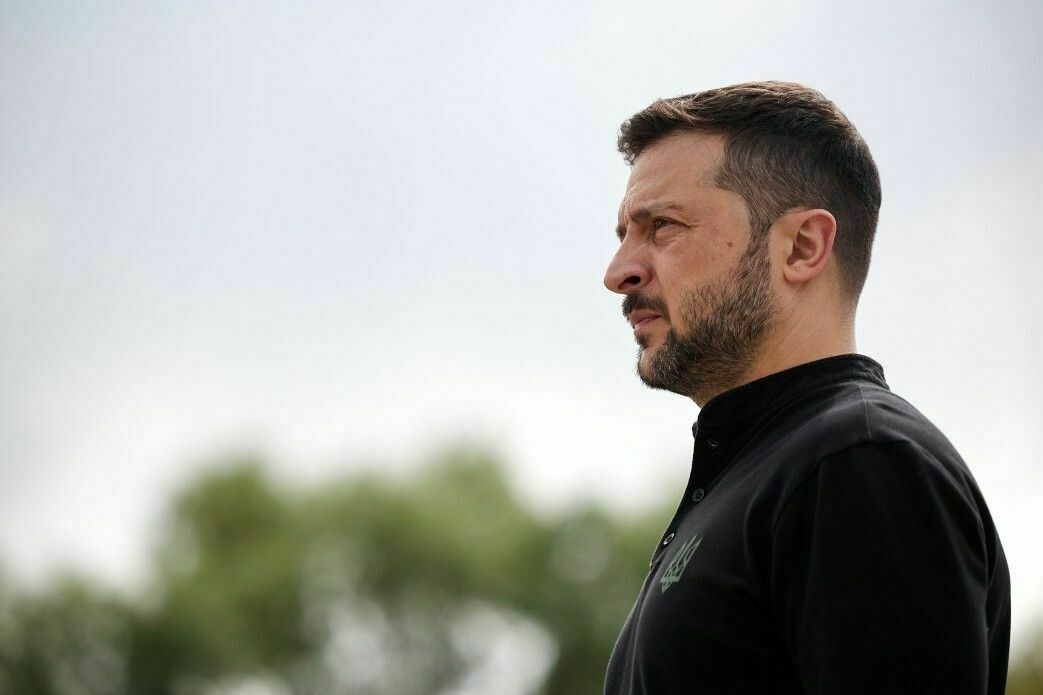-
UK proposes Western peacekeeping mission of 10,000 troops in Ukraine
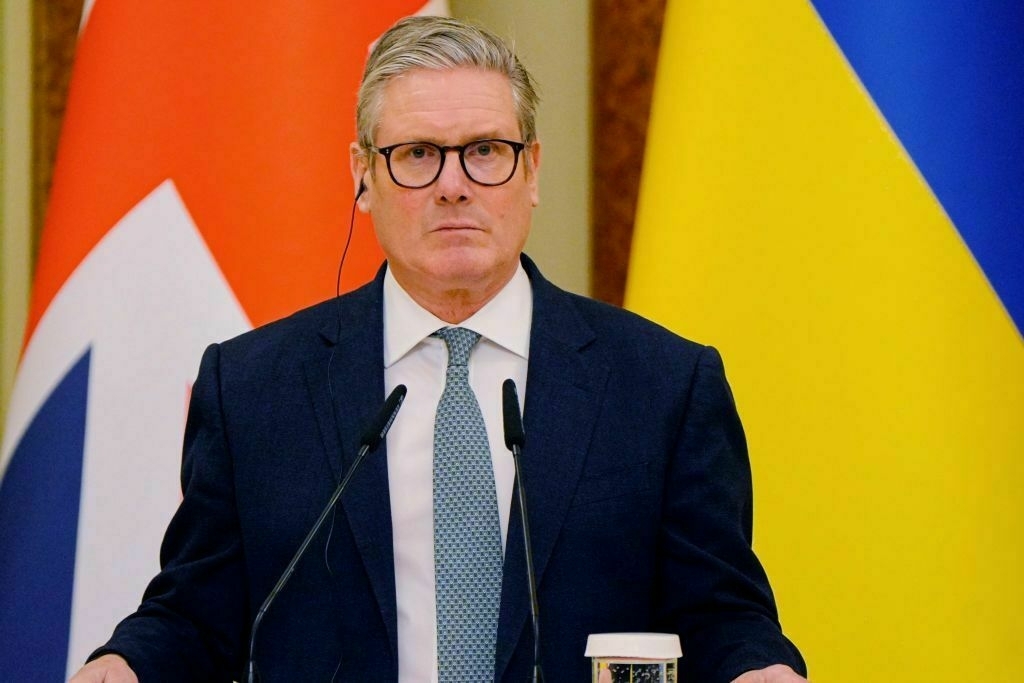
U.K. Prime Minister Keir Starmer presented plans to send 10,000 peacekeeping troops to Ukraine at a high-level virtual summit in London on March 15.
The summit, which included 29 international leaders, was organized by the U.K. with the purpose of creating a “coalition of the willing” that could secure Ukraine in the event of a peace deal with Russia.
Starmer’s proposed peacekeeping contingent would include around 10,000 troops, mostly provided by the U.K. and France, U.K. military sources told the Sunday Times. Thirty-five countries have agreed to supply the peacekeeping mission with weapons, logistics, and intelligence support.
The peacekeeping mission will be “a significant force with a significant number of countries providing troops and a much larger group contributing in other ways,” a senior government source said.
In addition to European nations, Australia, Canada, and New Zealand joined the call, as did NATO Secretary General Mark Rutte.
The proposed force of 10,000 is significantly smaller than the 30,000 troops Starmer reportedly pitched to U.S. President Donald Trump during their White House meeting on Feb. 20.
Previously, President Volodymyr Zelensky said that European partners would need to station 100,000 to 150,000 troops on Ukraine’s front lines to effectively deter Russia.
U.K. defense sources told the Guardian on Feb. 18 that a much smaller European-led peacekeeping force could instead rely on intelligence, surveillance, and long-range monitoring to enforce a ceasefire.
Following the virtual summit, Starmer announced that “troops on the ground and planes in the sky” would provide security guarantees for Ukraine following a future peace deal.
The allied coalition will hold a second round of military talks on March 20, Starmer said.
While France and the U.K. have been the most vocal about sending troops to Ukraine, some countries, including Italy and Finland, have expressed reservations. Italian Prime Minister Giorgia Meloni attended the summit and vocalized support for Ukraine, but said that Italy does not plan to participate in the proposed peacekeeping force.
The summit followed an eventful week of diplomacy, as Kyiv agreed to a 30-day ceasefire proposed by the U.S. on March 11. While the the Kremlin said it was ready to agree to the U.S.-backed ceasefire, it demanded that Kyiv limit military mobilization and training in addition to the West halting military aid to Ukraine.
U.S. President Donald Trump and Russian President Vladimir Putin are expected to hold a call this week to discuss the terms of the ceasefire, Trump’s Special Envoy Steve Witkoff said on March 16.
-
Suspect pleads guilty to murder of Odesa activist Demyan Hanul
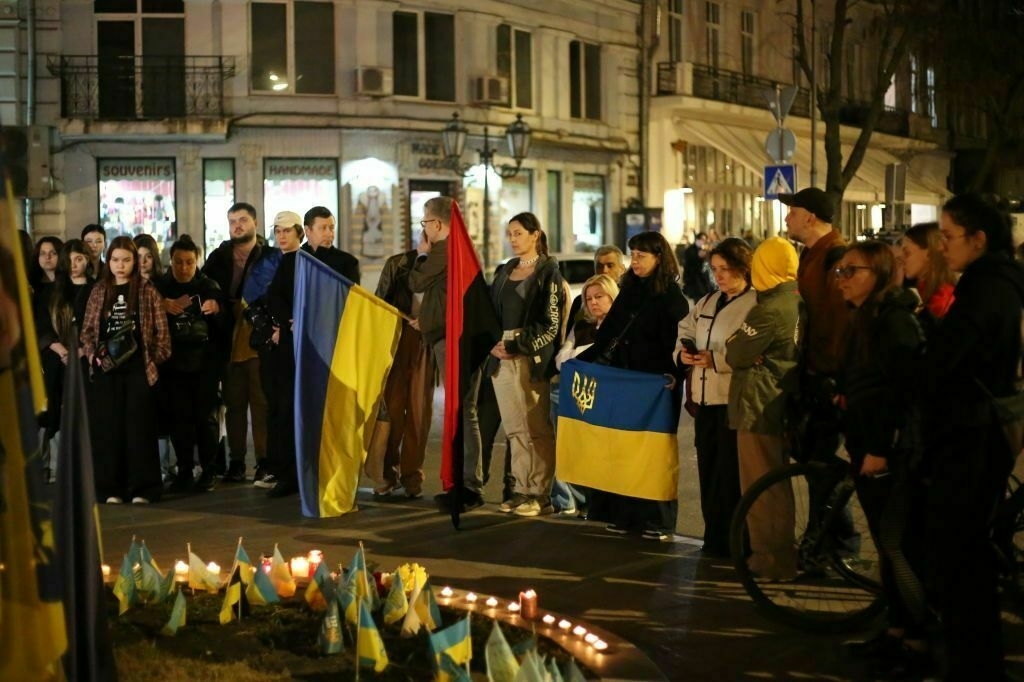
Serhii Shalaiev, the man detained and charged with the killing of Ukrainian activist Demyan Hanul, pled guilty to the murder in a closed court hearing on March 16, according to regional prosecutor Ruslan Veremchuk.
Hanul, 31, was shot dead in central Odesa on March 14. Hanul was well-known for his public activism, including his participation in Ukraine’s EuroMaidan Revolution and the May 2 clashes against pro-Russian forces in Odesa.
The suspect, 46-year-old Serhii Shalaiev, pleaded guilty to Hanul’s murder in a closed court session, the news outlet Suspilne reported, citing Veremchuk. Shalaiev was detained hours after the shooting and identified as a deserter by the Security Service of Ukraine (SBU).
Prosecutors charged Shalaiev with premeditated murder committed under order and illegal handling of weapons.
Veremchuk, deputy head of the Odesa Specialized Prosecutor’s Office for Defense of the Southern Region, said the hearing was held in a closed session to protect the identities of testifying witnesses. He also said investigators are still working to determine who else may have been involved in Hanul’s murder.
“The perpetrator of this crime has been detained,” Veremchuk said.
“One of the versions of the investigation is that it was a contract killing. Measures are being taken to identify the customer and other accomplices in the crime."
Shalaiev has been wanted for military desertion since February 23, according to the SBU. He reportedly served as commander of a platoon in the 28th separate mechanized brigade.
The court has imposed a pre-trial detention order on Shalaiev, who will be held in custody for 60 days without possibility of bail.
Andrii Nebytov, deputy head of the National Police, previously said during a television broadcast on March 15 that investigators were considering three possible versions of the crime: a contract killing linked to Hanul’s political activism, a crime of personal animosty, and an assassination linked to Russia.
Hanul was a public figure and blogger who founded the Street Front NGO. He was active in rallies supporting Ukraine, charity fundraisers for the military, and campaigns to dismantle the city’s Soviet and imperial monuments.
The activist had previously reported threats against his life. In July 2024, Hanul claimed Russian sources had leaked personal information about his relatives and that a $10,000 bounty was offered for an attack on him.
In reaction to the murder, President Volodymyr Zelensky said that dozens of law enforcement officials are involved in the investigation.
“I have instructed the interior minister, the head of the Security Service, the acting prosecutor general to throw all the necessary forces and means to establish all the facts,” Zelensky said.
‘Everyone is really shocked and upset’ — Trump administration puts Voice of America journalists on leave, cuts funding to Radio Free EuropeThe Trump administration on March 15 followed up a on an executive order signed a day earlier by President Donald Trump vowing to gut funding for the U.S. Agency for Global Media (USAGM), which oversees Voice of America (VOA) and Radio Free Europe/Radio Liberty (RFE/RL). As aThe Kyiv IndependentDmytro Basmat
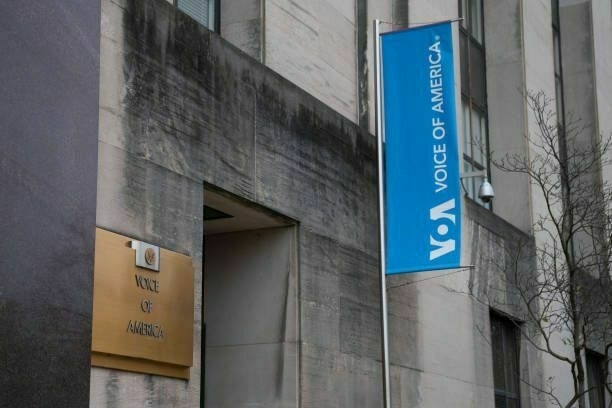
-
Air Force says 47 Russian drones shot down overnight
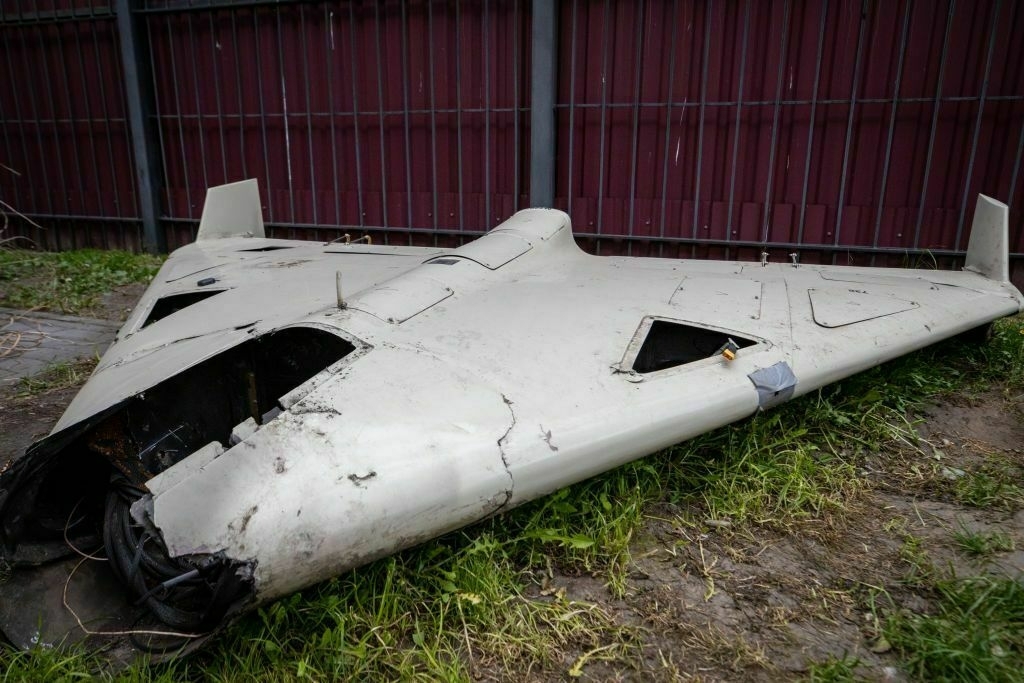
Ukraine’s Air Force reported on March 16 that it had shot down 47 Russian Shahed and other drones across the country overnight.
Russian troops attacked Ukraine with 90 drones, targeting Kyiv, Kharkiv, Poltava, Sumy, Cherkasy, Zhytomyr, Dnipropetrovsk, Donetsk, and Odesa oblasts, according to the Air Force’s report.
The Air Force added that it had lost track of 33 Russian decoy drones but said that they had caused no damage.
Russia’s aerial attack against Ukraine comes as the U.S. is negotiating with Russia on a potential 30-day ceasefire, which Kyiv agreed to earlier in March. Russian drone attacks have targeted Ukraine every day.
Since the start of the full-scale war, Russia has regularly launched drone and missile attacks on Ukraine, including cities far from the front line. The attacks have often targeted civilian sites and critical infrastructure.
‘Everyone is really shocked and upset’ — Trump administration puts Voice of America journalists on leave, cuts funding to Radio Free EuropeThe Trump administration on March 15 followed up a on an executive order signed a day earlier by President Donald Trump vowing to gut funding for the U.S. Agency for Global Media (USAGM), which oversees Voice of America (VOA) and Radio Free Europe/Radio Liberty (RFE/RL). As aThe Kyiv IndependentDmytro Basmat
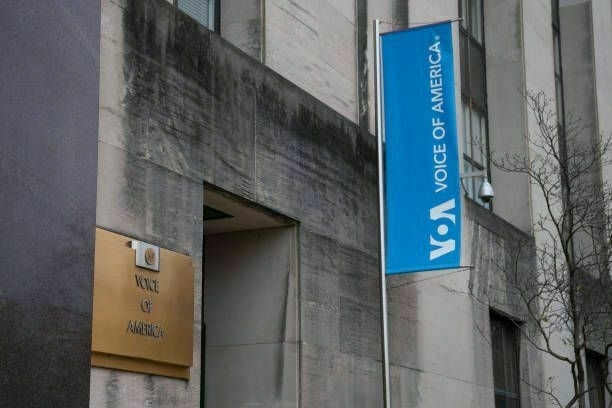
-
Kremlin: potential Putin-Trump meeting could happen on short notice
In a recent statement, Yuri Ushakov, an aide to the Russian president, hinted that a meeting between Russian President Vladimir Putin and former U.S. President Donald Trump could be organized on short notice. "We are preparing for the meeting, and it will be arranged as soon as there's a necessity," TASS quoted him as saying.
Ushakov noted that discussions are ongoing and emphasized that the logistics for such a meeting could be swiftly managed.
Additionally, Ushakov expressed Russia's concern that "any ceasefire could provide time for Ukrainian forces to rearm," stressing that Russia has conveyed this standpoint to the U.S.
Previously, sources from the Russian news outlet The Moscow Times suggested that a Trump-Putin summit might occur in April or May, likely in the Middle East.
On March 13, Moscow was visited by U.S. special envoy Steve Witkoff.
Following this visit, President Putin declared Russia's support for a ceasefire in Ukraine but insisted that it must "lead to lasting peace and address the root cause of the crisis."
The Kremlin chief also stipulated conditions for a potential 30-day truce: Ukraine must refrain from mobilization, military training, and receiving weapons from its allies.
-
Trump-Putin phone call expected this week, White House envoy says
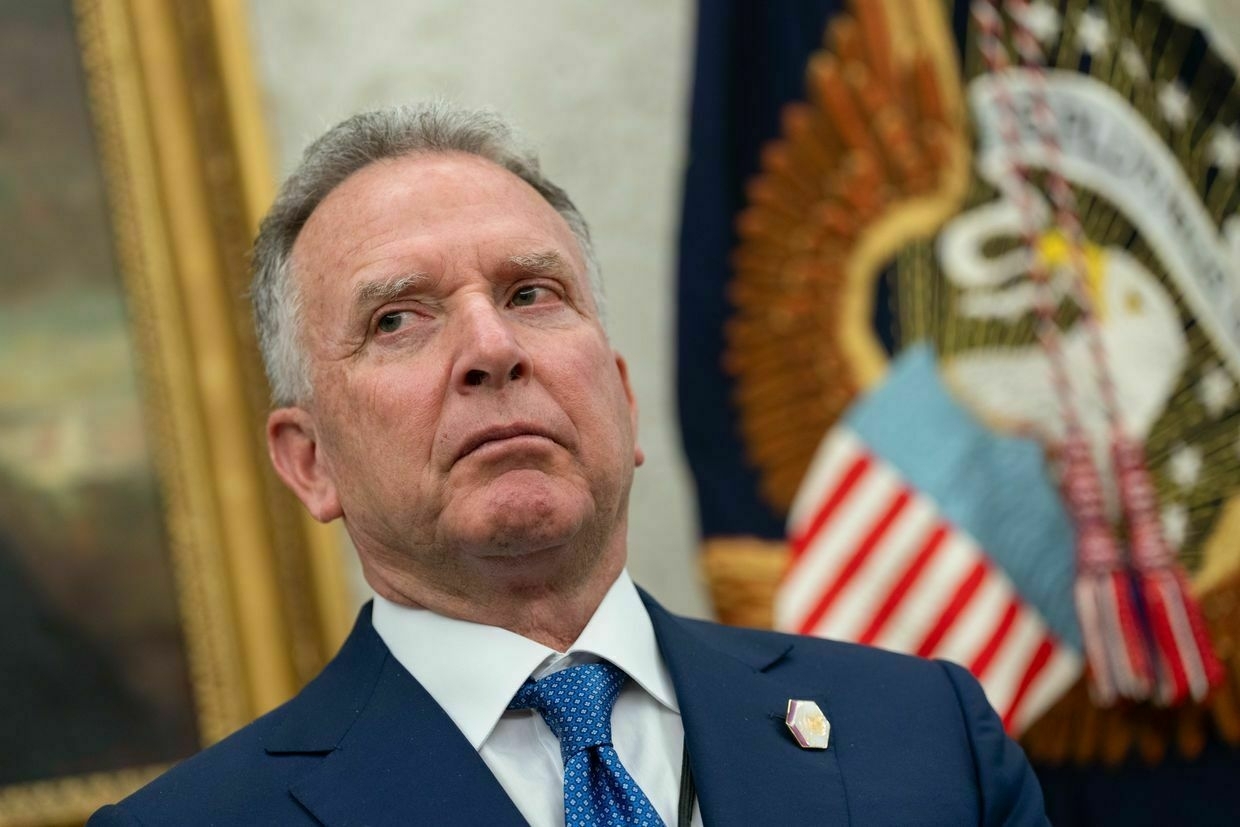
U.S. President Donald Trump is expected to hold a phone call with his Russian counterpart Vladimir Putin this week, Steve Witkoff, Trump’s special envoy to the Middle East, said on March 16.
“I expect that there will be a call with both presidents this week, and we’re also continuing to engage and have a conversation with the Ukrainians,” Witkoff told CNN after meeting Putin in Moscow on March 13, as cited by Reuters.
Witkoff has said the talks with Putin went well, and that he believes he expected the phone call between the two presidents to be “really good and positive.”
“We’re bridging the gap between two sides” he said.
“The four regions are of critical importance here,” Witkoff said, referring to Donetsk, Luhansk, Kherson, and Zaporizhzhia oblasts, which are partially or occupied by Russian troops.
Witkoff also said that the U.S. is holding discussions with Ukraine, Russia, and European allies, including France, the U.K., Finland, and Norway.
-
US launches airstrikes on Iranian-backed rebels as Trump orders 'decisive' military action
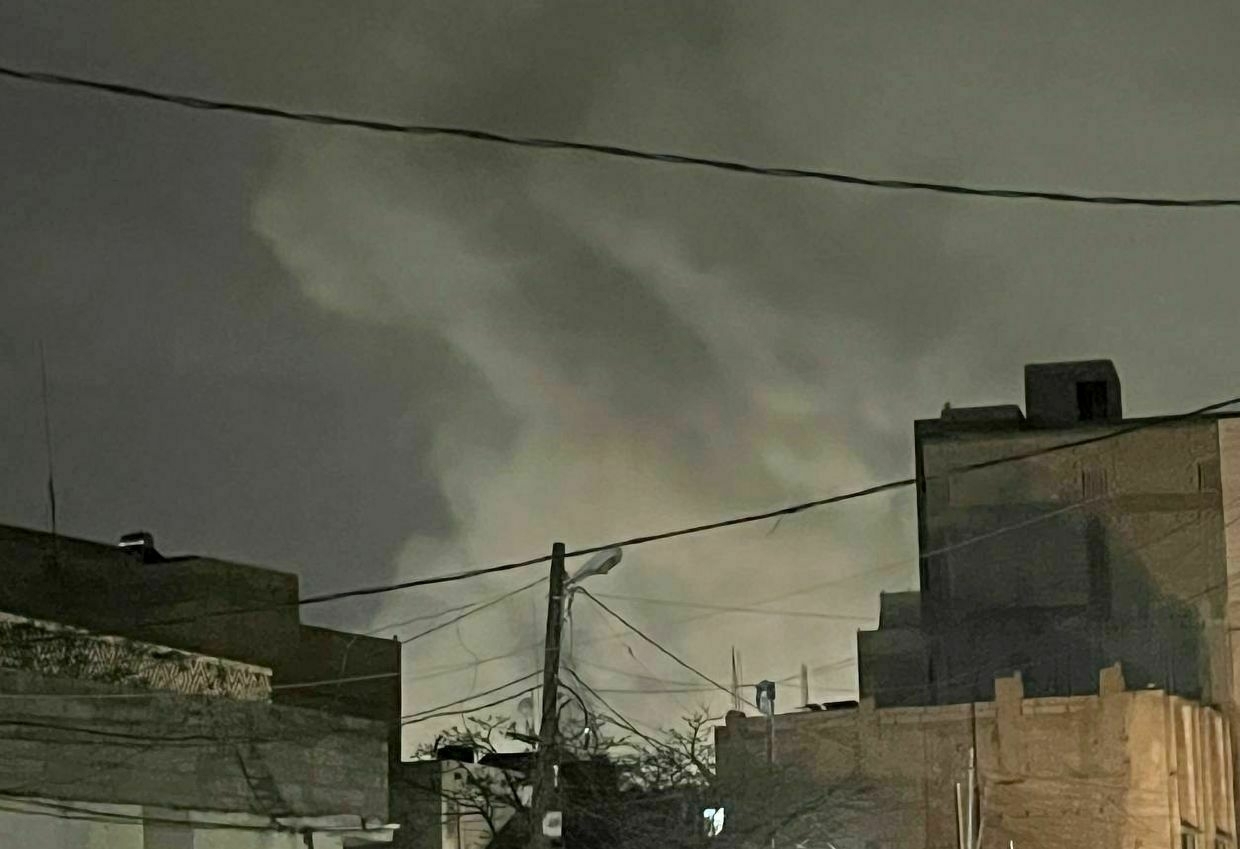
The U.S. launched airstrikes against the Iranian-backed Houthi rebels in Yemen on March 15 as President Donald Trump ordered “decisive” military action against the group.
Trump also said that the U.S. would hold Iran “fully accountable” if it didn’t end support for the Houthi rebels “immediately."
The U.S. attack against the Houthi rebels and the threat to Iran come as Moscow continues to expand its partnership with Tehran. Iran has provided Russia with thousands of Shahed drones used in attacks against Ukrainian cities, as well as short-range ballistic missiles.
The strikes on the Houthis also come amid increasing tensions between their main backer, Iran, and Israel, which is supported by the U.S., including a controversy over Tehran’s nuclear weapons program.
“Today, I have ordered the United States Military to launch decisive and powerful military action against the Houthi terrorists in Yemen,” Trump said in a post on Truth Social, claiming that his predecessor Joe Biden’s approach was “pathetically weak.”
“They have waged an unrelenting campaign of piracy, violence, and terrorism against American, and other, ships, aircraft, and drones."
Trump said the U.S. would deploy “overwhelming lethal force” against the rebels “until we have achieved our objective."
CNN reported, citing the Houthi-run health ministry, that at least 31 people had been killed and 101 injured in Yemen by the U.S. strikes, and that most of the casualties were women and children. The Kyiv Independent could not verify this information.
Despite worsening relations between the U.S. and Iran, Trump’s team is trying to resume the long-frozen diplomatic relations with one of Tehran’s backers, Russia.
On March 13, Trump’s special envoy Steve Witkoff paid a visit to Moscow for talks on the 30-day ceasefire proposal that Ukraine had accepted after a U.S.-Ukrainian meeting in Saudi Arabia on March 11.
‘Conditions for Ukraine’s surrender’ — Why Putin’s demands for ceasefire make no senseRussian President Vladimir Putin’s conditions for a ceasefire are unrealistic and tantamount to demanding that Ukraine disarm itself and surrender, analysts say. Putin said on March 13 that Russia was ready to agree to the U.S.-backed 30-day-long ceasefire in Ukraine but then followed by listing a…The Kyiv IndependentOleg Sukhov
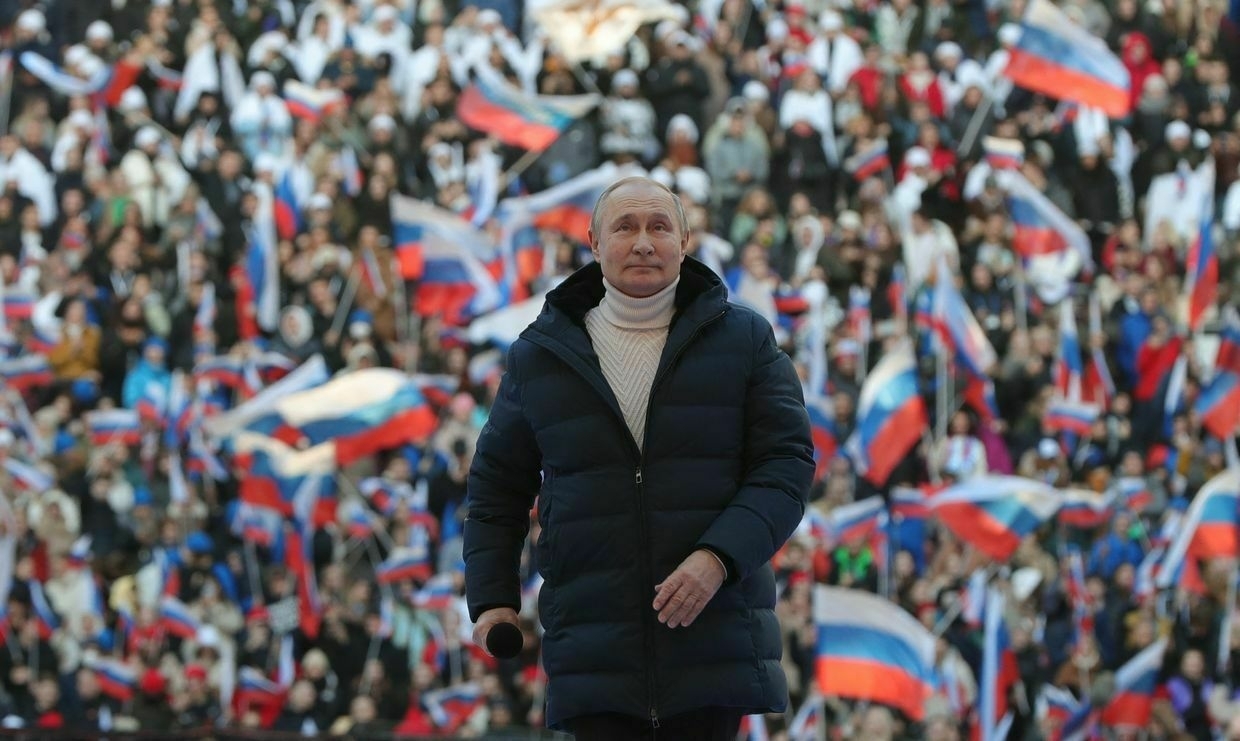
-
Ukraine confirms withdrawal from Sudzha in Russia's Kursk Oblast
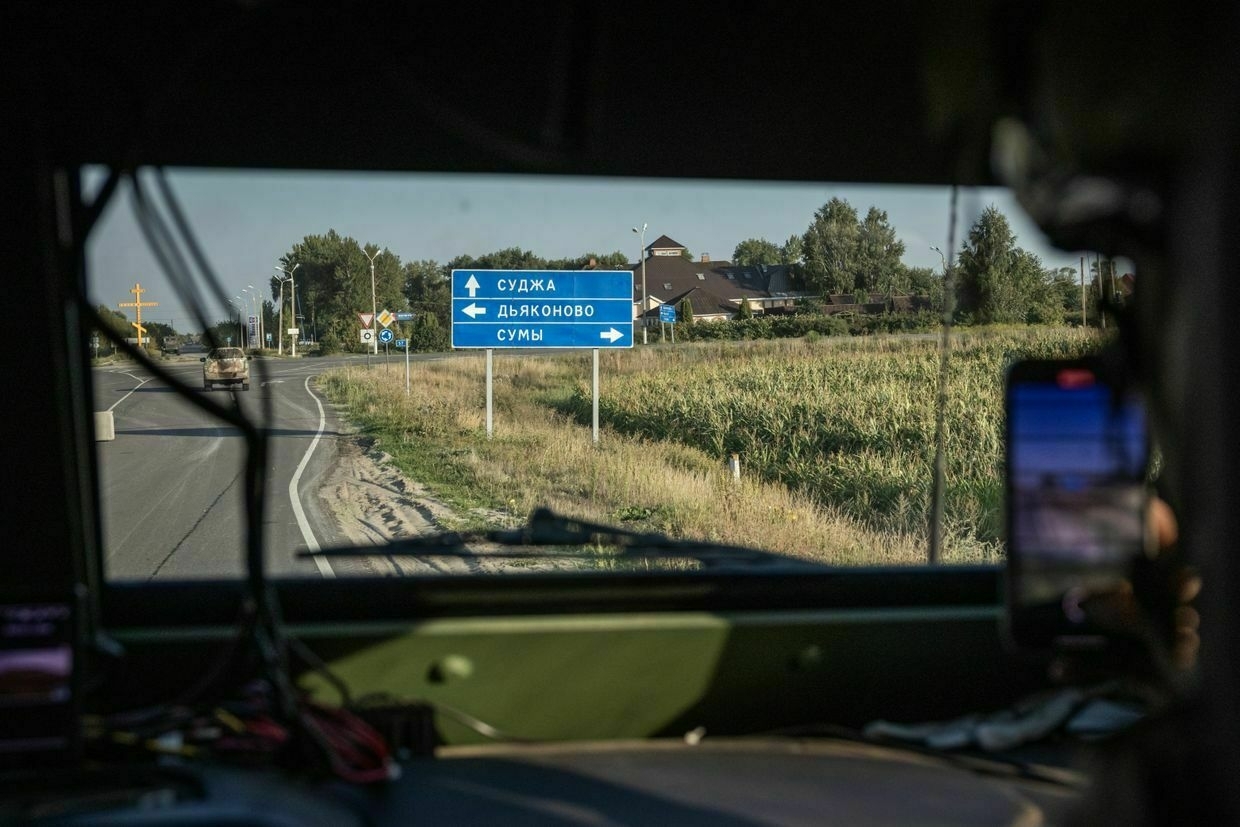
Ukraine’s General Staff on March 16 confirmed Ukrainian troops' withdrawal from the logistics hub of Sudzha in Russia’s Kursk Oblast, days after Moscow claimed its capture.
Without confirming the withdrawal with a statement, the General Staff posted the latest battlefield maps on social media, which showed a complete retreat from Sudzha.
The confirmation comes as Russian troops scale up their offensive in the Russian border region, where Ukraine launched a surprise cross-border incursion in August 2024 in hopes of using the captured territories as a bargaining chip for potential peace negotiations.
Kyiv has held on to its gradually shrinking foothold in Kursk Oblast despite a deteriorating logistics situation caused by Russia’s intense use of artillery, drones, and glide bombs.
As unconfirmed reports of a Ukrainian encirclement circulated online, U.S. President Donald Trump urged his Russian counterpart Vladimir Putin on March 14 to “spare” allegedly surrounded Ukrainian troops.
Ukraine has denied the claims of encirclement.
The Russian Defense Ministry claimed on March 13 that its troops had captured Sudzha.
The claim came a day after Commander-in-Chief Oleksandr Syrskyi confirmed ongoing battles in the suburbs of Sudzha and the surrounding areas.
“In the most difficult situation, my priority has been and remains to save the lives of Ukrainian soldiers. To do this, the units of (Ukraine’s) Defense Forces, if necessary, are maneuvering to more favorable positions,” Syrskyi said.
Ukraine war latest: Kyiv denies Trump’s claims of Ukrainian encirclement in Kursk OblastKey developments on March 14: * Kyiv says Ukrainian troops ‘regrouped’ in Kursk Oblast, deny encirclement * Ukrainian drones strike Russian gas facilities, missile depot, source claims * Ukrainian drones strike Tuapse oil refinery in Russia’s Krasnodar Krai, governor says * Putin still seeks co…The Kyiv IndependentThe Kyiv Independent news desk
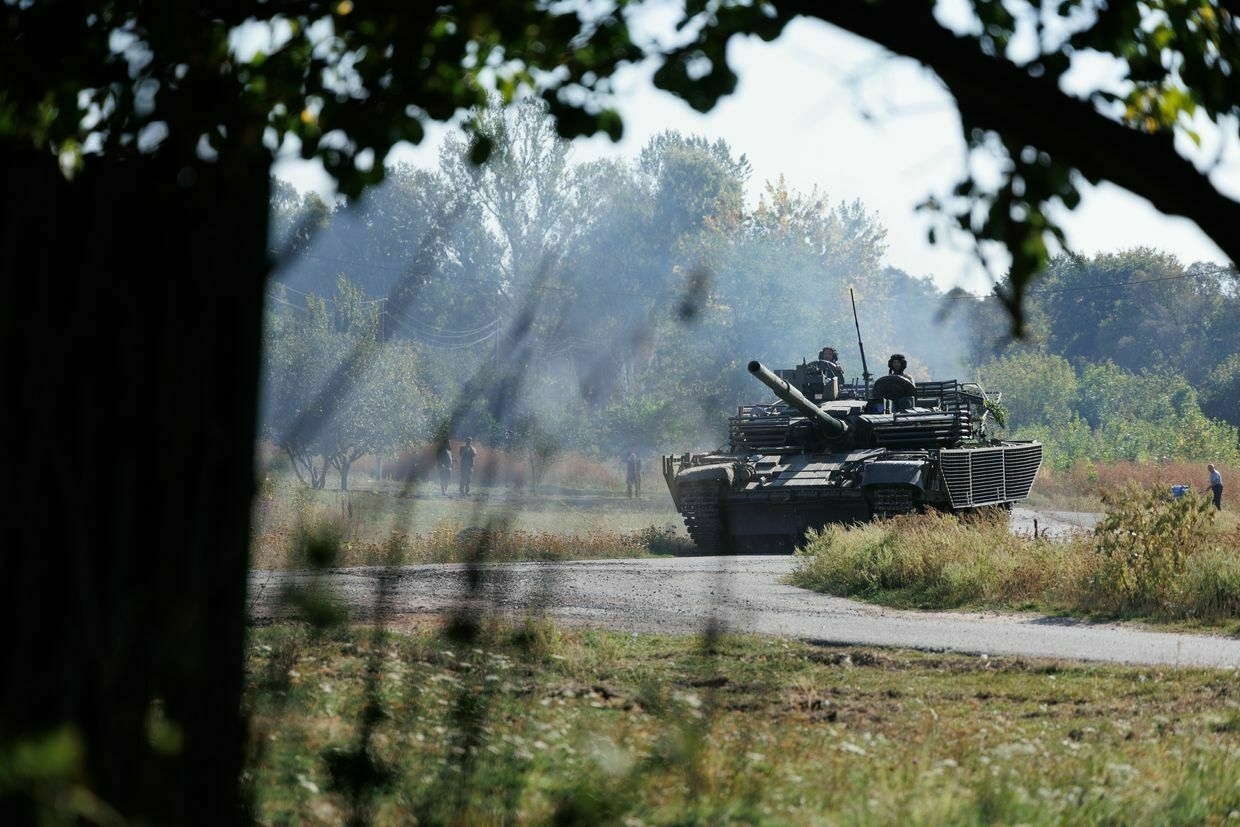
-
Trump denies reports on his envoy waiting for Putin, calls media 'sick degenerates'
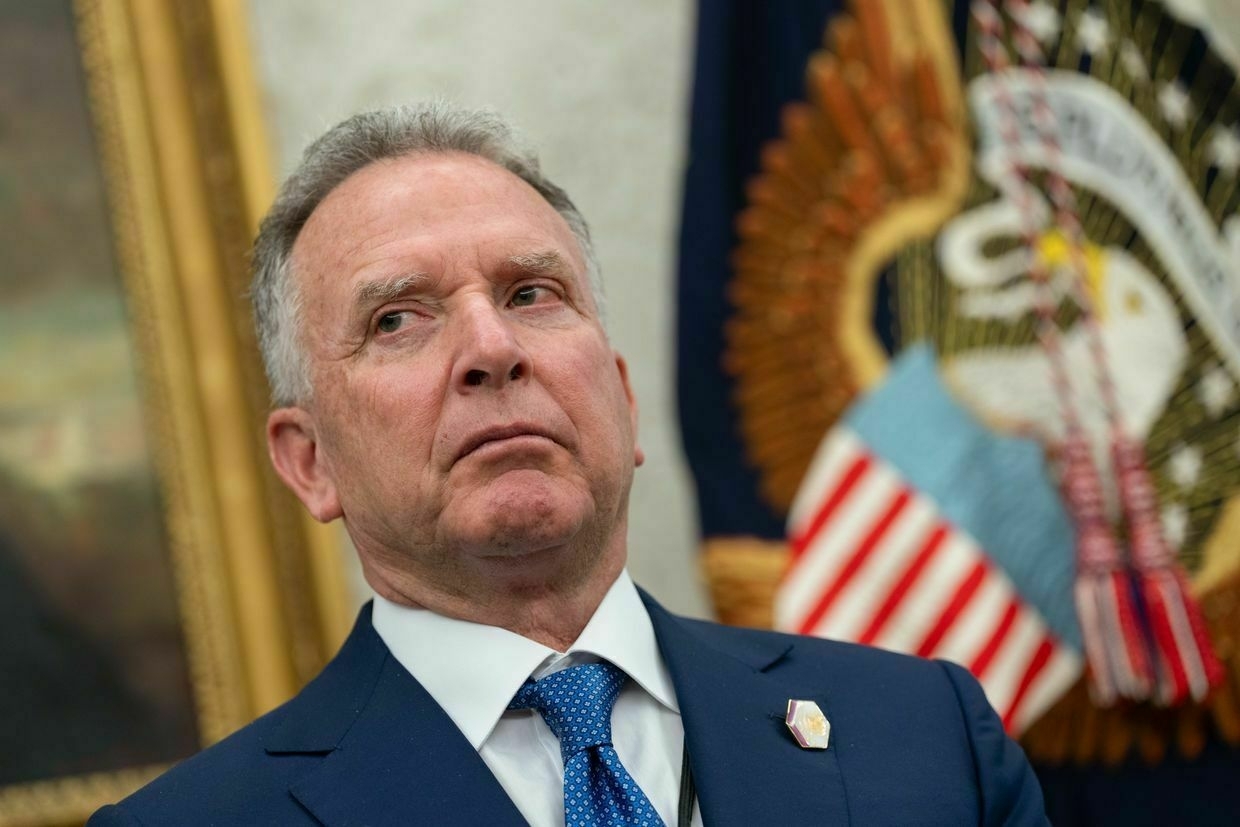
U.S. President Donald Trump on March 15 denied reports that his special envoy Steve Witkoff had waited for hours for a meeting with Russian President Vladimir Putin in Moscow.
Sky News reported on March 14, citing footage, that Witkoff had waited at least eight hours for Putin while the Russian leader was meeting Belarusian dictator Alexander Lukashenko, in what appeared to be a classic power play.
Witkoff paid a visit to Moscow on March 13 for talks on the 30-day ceasefire proposal that Ukraine had accepted after a U.S.-Ukrainian meeting in Saudi Arabia on March 11.
“The fake news, as usual, is at it again!” Trump said in a post on Truth Social. “Why can’t they be honest, just for once? Last night I read that President Vladimir Putin of Russia kept my highly respected Ambassador and Special Envoy, Steve Witkoff, waiting for over nine hours when, in fact, there was no wait whatsoever.”
Trump attacked the media that reported the story, saying that their purpose is “to demean” and calling them “sick degenerates.”
He claimed that “other meetings with other representatives of Russia did take place and, obviously, they took some time, but they were very productive.”
“From there, things went quickly and efficiently, and all signs seem to be, hopefully, very good!' Trump added.
Putin said on March 13 that Russia was ready to agree to the U.S.-backed 30-day-long ceasefire in Ukraine but then followed by listing a number of demands — a ban on Ukrainian mobilization or training of troops and a halt on Western military aid for Kyiv.
Putin also hinted that Ukrainian troops in Russia’s Kursk Oblast must surrender.
Talks on a potential ceasefire come as Trump pushes for a rushed peace deal to end the war at any cost, keeping European and Ukrainian officials on alert.
‘Conditions for Ukraine’s surrender’ — Why Putin’s demands for ceasefire make no senseRussian President Vladimir Putin’s conditions for a ceasefire are unrealistic and tantamount to demanding that Ukraine disarm itself and surrender, analysts say. Putin said on March 13 that Russia was ready to agree to the U.S.-backed 30-day-long ceasefire in Ukraine but then followed by listing a…The Kyiv IndependentOleg Sukhov
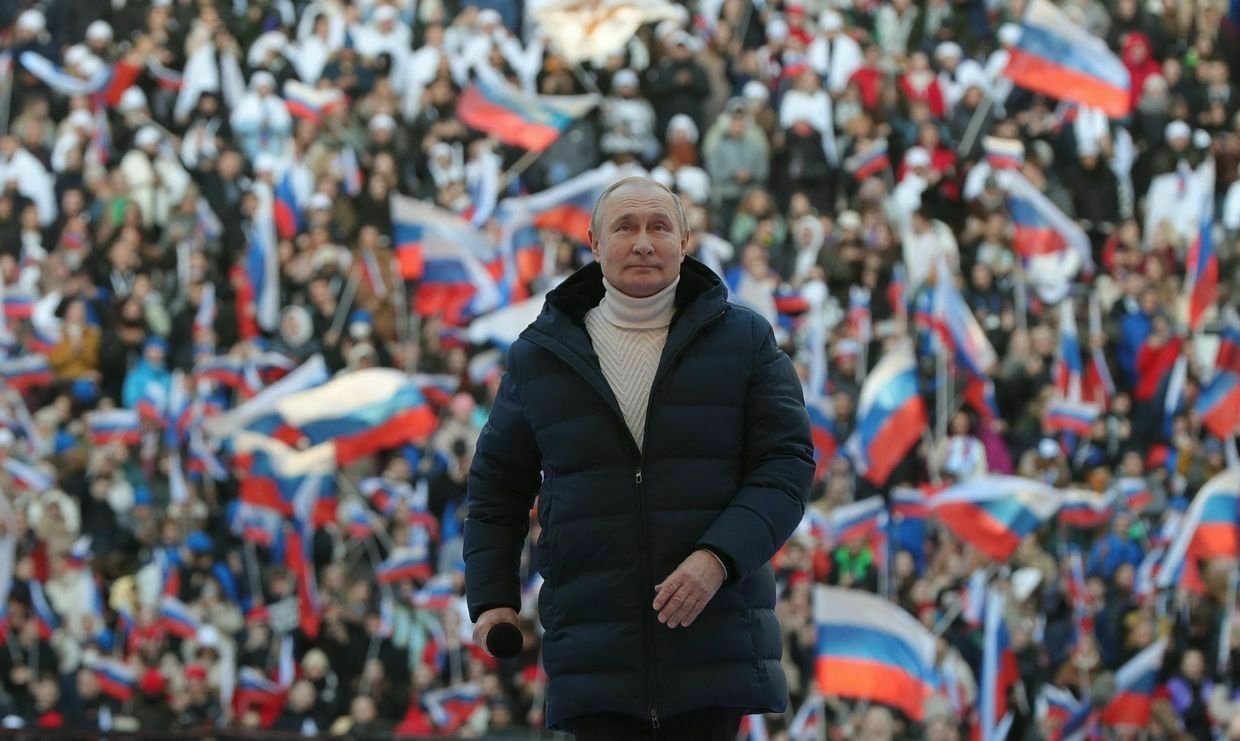
-
Canada contributes additional $35 million toward restoring energy infrastructure in Ukraine
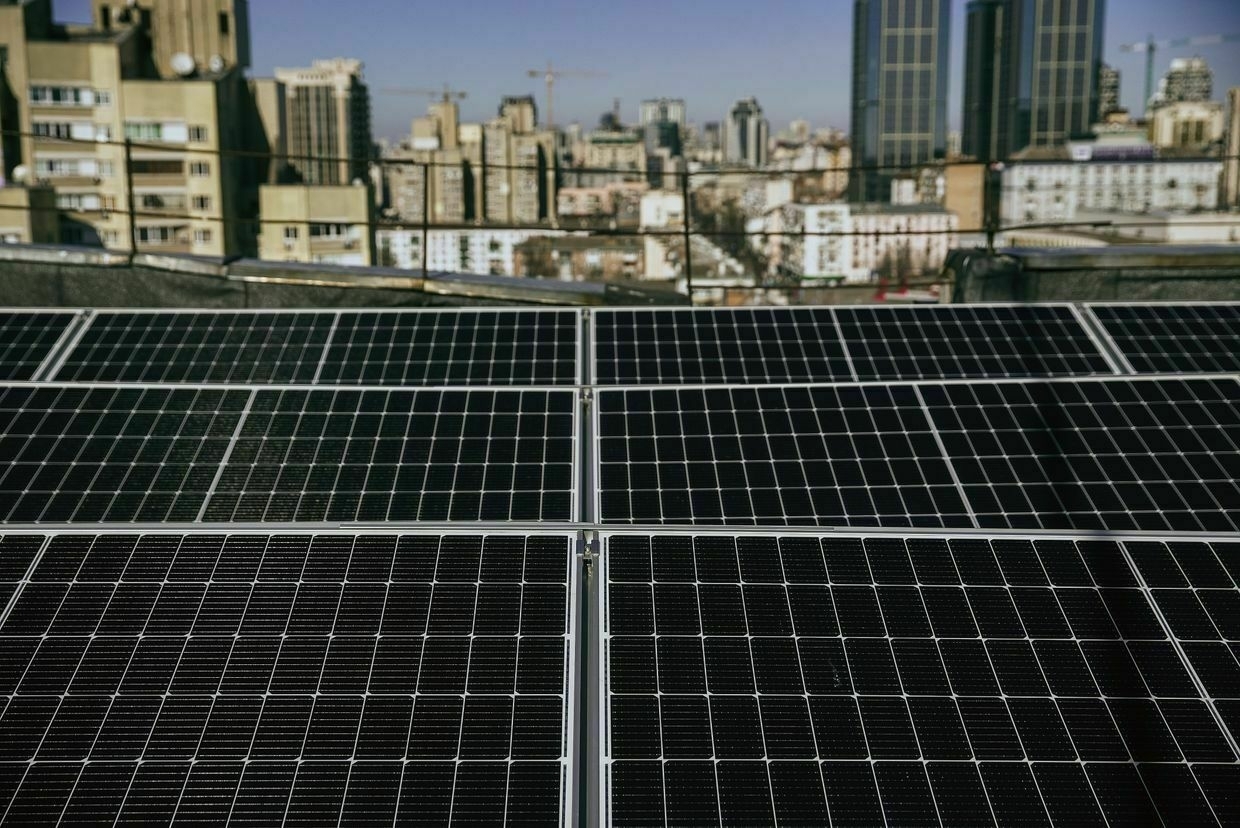
Canada contributed another 50 million Canadian dollars ($34.8 million) to the Ukraine Energy Support Fund, Ukraine’s Energy Ministry said on March 14.
Days prior, Ukraine received the first tranche of a loan of $1.7 billion covered by frozen Russian assets from Canada, the Ukrainian Finance Ministry announced on March 13.
“As Russia continues its ruthless attacks on Ukrainian infrastructure, leaving millions without electricity, water, and heat, Canada is proud… to continue the important work it is doing to help Ukraine repair its critical infrastructure,” Canadian Foreign Minister Melanie Joly said in a statement.
Canada’s total contribution to the Ukraine Energy Support Fund is now over $41 million. Canada also declared a future contribution of 10 million Canadian dollars ($7 million) to the fund.
The Ukraine Energy Support Fund raises costs to restore energy facilities and support critical infrastructure.
“Contributions to the Energy Support Fund are directed toward purchasing equipment necessary for restoring energy facilities after enemy attacks and ensuring the stable operation of Ukraine’s energy system,” Energy Minister Herman Halushchenko said.
Part of the new contribution will go towards the healthcare sector to support critical social infrastructure through the development of solar energy to support operations.
The added funding will help ensure the stable operation of the energy industry in Ukraine by restoring critical energy reserves for energy companies, Canada’s International Development Minister Ahmed Hussen said.
Various countries contribute to the Ukraine Energy Support Fund established in 2022 with the help of the EU.
Iceland allocated over $2 million to the fund on March 11 and Italy promised to contribute $13.5 million on Feb. 28.
Russian aerial attacks regularly target civilian infrastructure, including energy services. Support from allies has proven to be crucial in maintaining Ukraine’s energy infrastructure.
‘Painful for Russia:’ What new U.S. sanctions on Russian energy mean for MoscowThe Trump administration dealt a blow to Russia’s energy sector last week after it let lapse an exemption allowing Russian banks to use U.S. payment systems for energy transactions. The move closed an important financial channel for Russian oil and gas exports and comes as Washington looks for waysThe Kyiv IndependentYana Prots
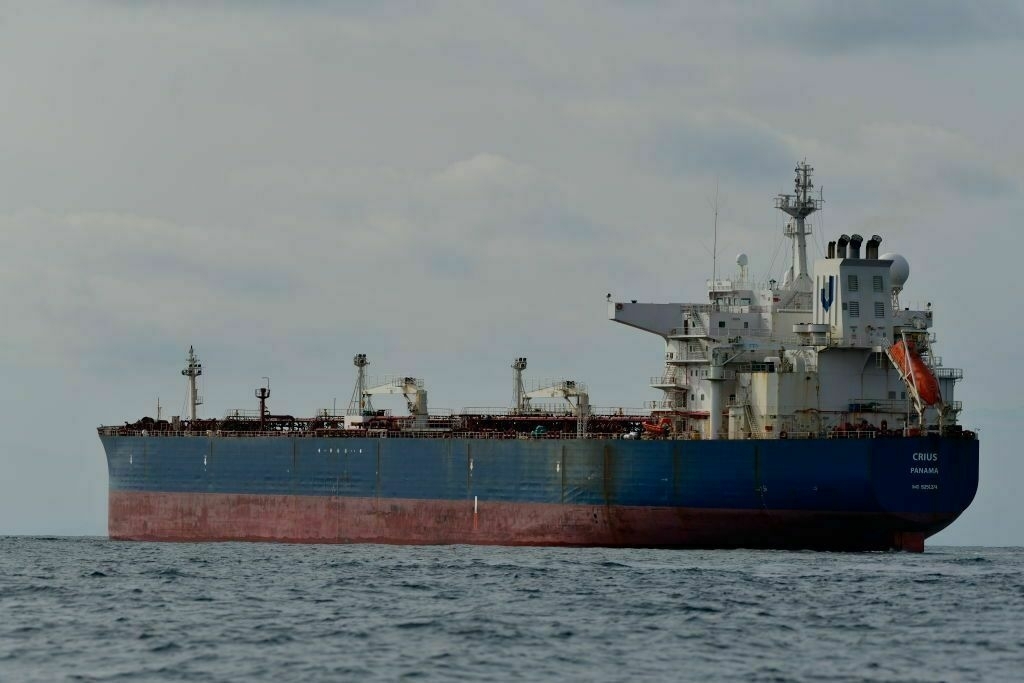
-
Italy does not plan to send peacekeepers to Ukraine, remains committed to 'effective security guarantees'
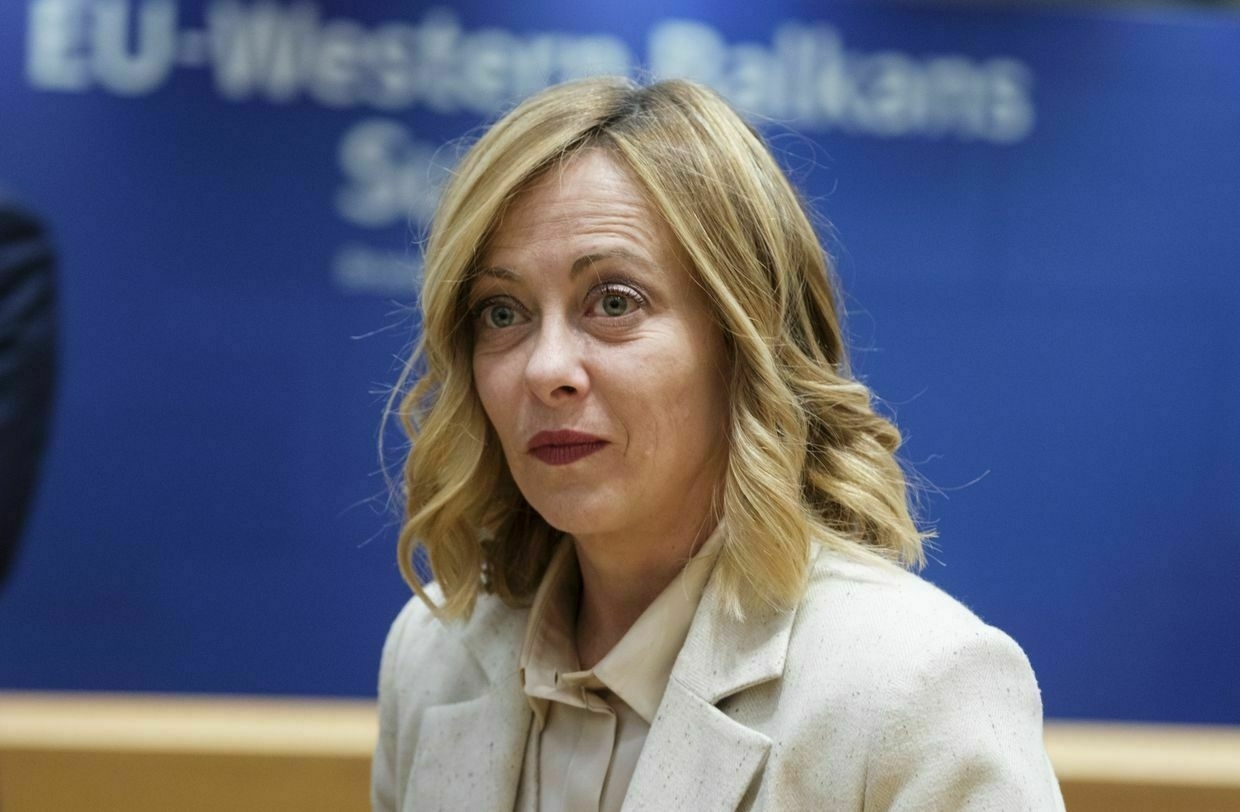
Italy does not plan to participate in a peacekeeping force on the ground in eastern Ukraine to guarantee a potential ceasefire, Italian Prime Minister Giorgia Meloni’s office said on March 15.
U.K. Prime Minister Keir Starmer hosted an online summit of the “coalition of the willing” earlier on March 15. Attendees discussed how each nation could contribute to securing Ukraine in the event of a peace deal with Russia.
Meloni attended the U.K.-led virtual summit on March 15 alongside 24 other nations at the multilateral event.
Italy does not have plans to participate in a peacekeeping force on the ground in Ukraine, a statement put out by Meloni’s office following the meeting read.
Italy will continue to work with European and Western allies to “define credible and effective security guarantees” for Ukraine, the statement added.
Following the summit, Ukraine’s allies reaffirmed their support for the embattled nation and condemned Russia for its war against Ukraine.
"Russia does not give the impression of a country that sincerely desires peace… It does not respond to the proposals of the United States and Ukraine. It intensifies hostilities. President Putin wants to get everything and then negotiate," French President Emmanuel Macron said.
While the U.K. and France have been the most vocal in supporting troops on the ground in Ukraine, leaders of other nations have expressed reservations about a military force.
“It is still too early to talk about putting troops on the ground because we don’t have a ceasefire, we don’t have a peace process… Once we have a clear plan, we start doing the commitments,” Finnish President Alexander Stubb said on March 15.
Stubb affirmed Finland’s support for Ukraine but in line with other nations bordering Russia such as Poland, Finland has sought to offer Ukraine security in other ways while retaining troops on its own territory.
In the face of the U.S. repeatedly ruling out NATO membership for Ukraine, Meloni said on March 6 that NATO could extend Article 5 protections to Ukraine without granting membership in the alliance.
“We need to think about more durable solutions” than just sending European peacekeepers to Ukraine, Meloni said on the sidelines of an EU leaders meeting in Brussels on March 6. “It’s a different thing than entering NATO, but it implies extending the coverage that NATO countries have also to Ukraine,” she added.
‘Everyone is really shocked and upset’ — Trump administration puts Voice of America journalists on leave, cuts funding to Radio Free EuropeThe Trump administration on March 15 followed up a on an executive order signed a day earlier by President Donald Trump vowing to gut funding for the U.S. Agency for Global Media (USAGM), which oversees Voice of America (VOA) and Radio Free Europe/Radio Liberty (RFE/RL). As aThe Kyiv IndependentDmytro Basmat
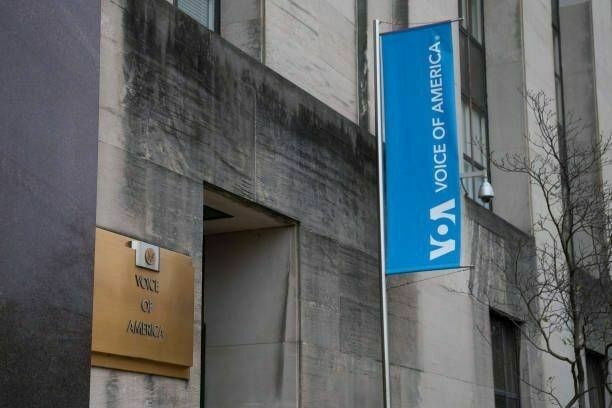
-
Rubio discusses 'next steps' in phone call with Russia's Lavrov
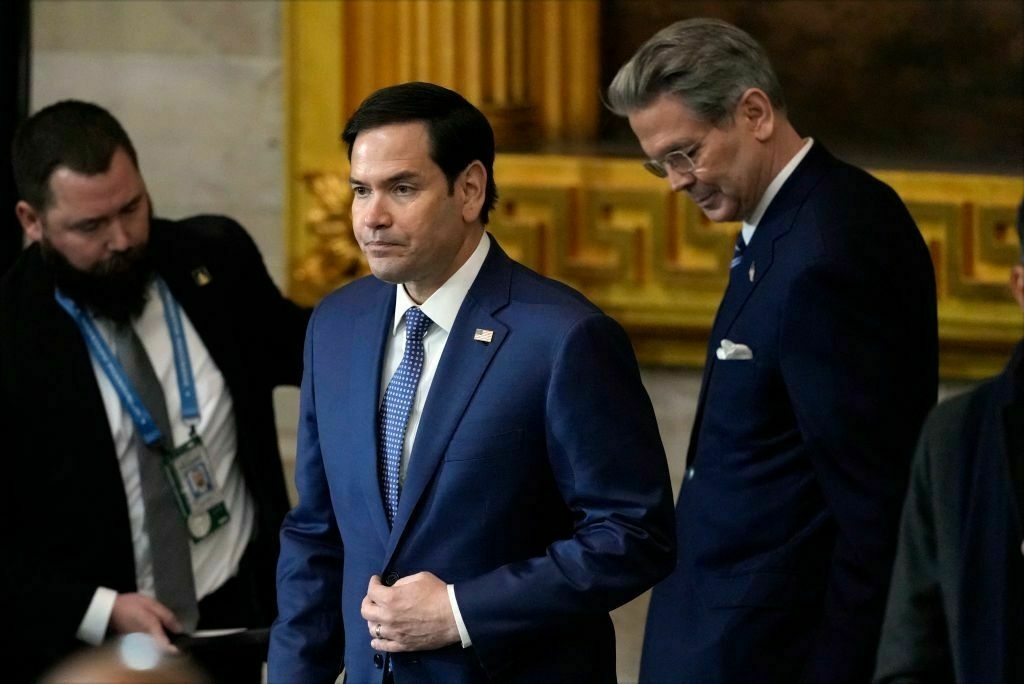
Editor’s note: This is a developing story and is being updated.
U.S. State Secretary Marco Rubio held a phone conversation with Russian Foreign Minister Sergey Lavrov on March 15 as Washington attempts to persuade Moscow to accept a 30-day ceasefire deal.
According to a statement by the U.S. State Department, Rubio and Lavrov discussed steps to restore contacts between the U.S. and Russia.
“Secretary Rubio and Foreign Minister Lavrov discussed next steps to follow up on recent meetings in Saudi Arabia and agreed to continue working towards restoring communication between the United States and Russia,” State Department Spokesperson Tammy Bruce said in a statement.
Rubio also informed Lavrov of the United States' operation on Houthi militants in Yemen. U.S. President Donald Trump announced earlier on March 15 on Truth Social that the U.S. had launched “decisive and powerful Military (sic) action” against the group.
No additional details were provided on the call by the U.S. State Department. A similar readout by the Russian Foreign Ministry provided no additional details.
Following talks with U.S. officials on March 11, Kyiv agreed to a temporary ceasefire, as long as Russia also abides by its terms. Russian President Vladimir Putin said on March 13 that Russia is ready to agree to the U.S.-proposed ceasefire in Ukraine but demands guarantees that Kyiv will not mobilize or train troops, nor receive military aid during it.
Putin’s hesitation to implement a ceasefire comes as the United States resumed security assistance and intelligence sharing to Ukraine following breakthrough high-level talks in Saudi Arabia.
As negotiations continue, Trump claimed during a speech at the Justice Department on March 14 that the White House has received “some pretty good news” regarding its attempts to secure a 30-day ceasefire agreement — without specifying what the news was.
Earlier on March 14, Trump claimed he asked Russian President Vladimir Putin to “spare” Ukrainian troops he said were surrounded by Russian forces in Kursk Oblast — a claim he repeated during his speech. Kyiv has denied reports that its troops are encircled in Kursk.
Rubio said on March 14 said that the administration was “cautiously optimistic” about progress towards a ceasefire, but added that the situation remains “complex."
With Putin demanding new concessions for a ceasefire, all eyes are on Trump’s next moveAs a U.S. delegation in Moscow worked to hammer out a ceasefire agreement with Russian President Vladimir Putin, the Russian leader responded by demanding extensive concessions in exchange for a ceasefire deal in Ukraine. So far, Trump has made harsh demands on Ukraine while avoiding putting simila…The Kyiv IndependentOleg Sukhov
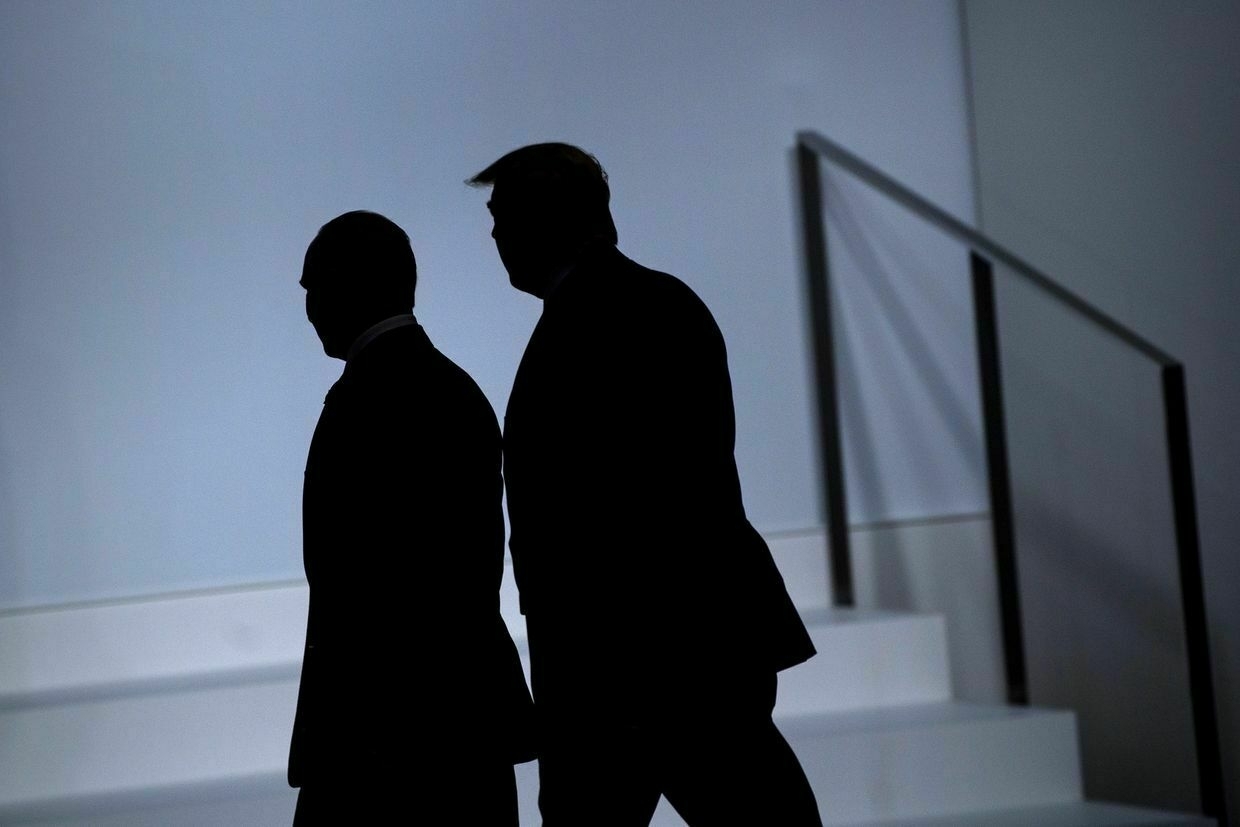
-
Duda denounces Russia for 'imperial greed,' reiterates calls to deploy US nuclear weapons in Poland
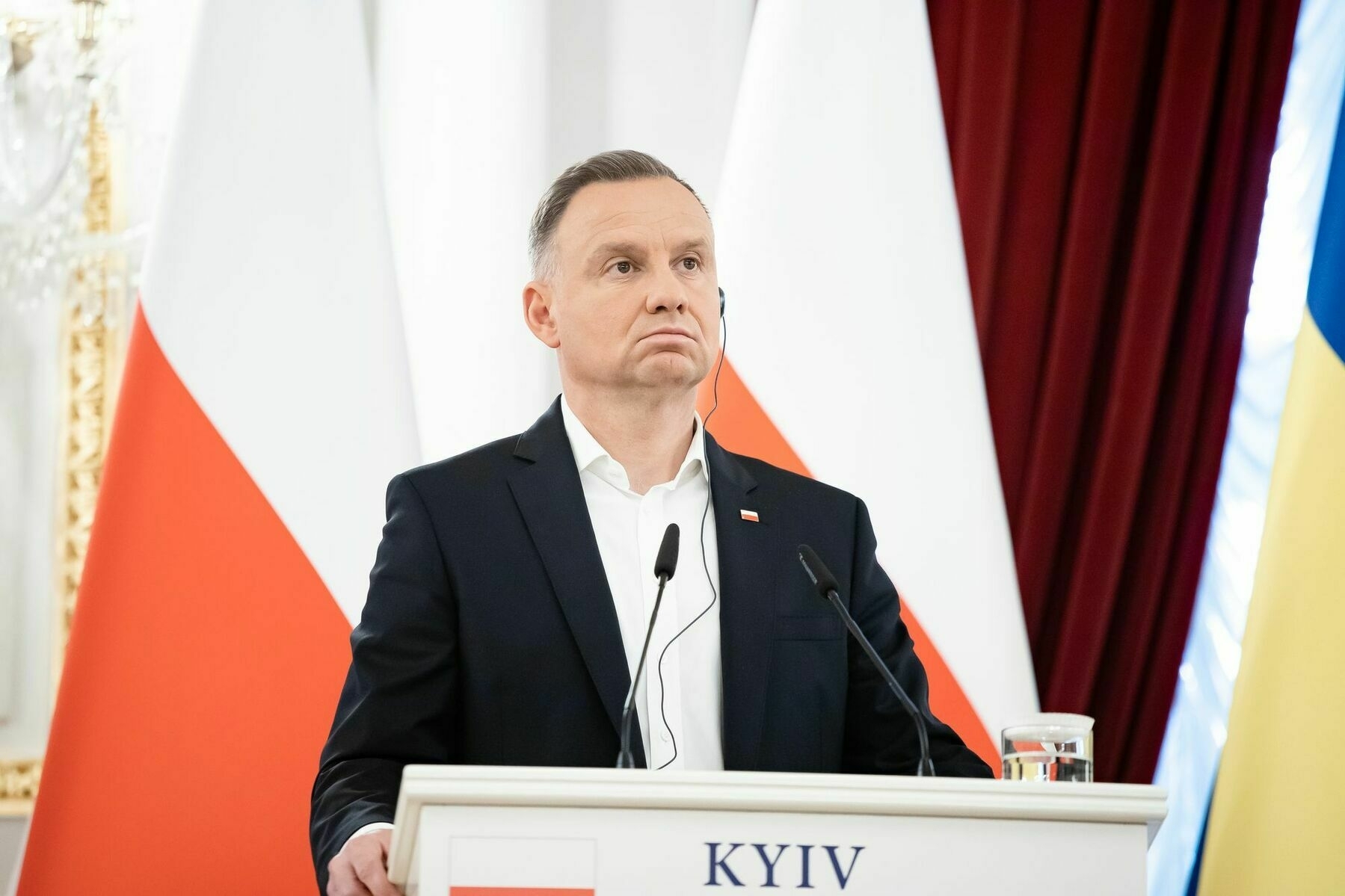
Polish President Andrzej Duda denounced Russia for its “imperial greed” in a wide-ranging interview with the BBC published on March 15.
Duda called on the U.S. to deploy its nuclear weapons to Poland in an interview published on March 13. U.S. Vice President JD Vance said he would be “shocked” if the U.S. fulfilled Poland’s request in response to Duda later that day.
“Ukraine must be sovereign and independent because otherwise there will be no peace, it will only be the end of the war due to the occupation of Ukraine by Russia,” Duda said.
The Polish president expressed his trust in U.S. President Donald Trump in resolving Russia’s war against Ukraine, saying accusations that Trump does not want to see Ukraine at the negotiating table are “false."
"(A)s I understand it, President Trump does not want to be a participant, but rather a mediator,” Duda said.
The Polish leader noted that Ukraine’s meeting with the U.S. in Saudi Arabia on March 11 ended on a positive note.
At the bilateral meeting, the White House agreed to resume military aid and intelligence sharing with Kyiv. Ukraine agreed to a U.S. proposal for a temporary 30-day ceasefire, Russia did not.
“The meeting with Ukraine was successful, and the Russian side, as you can see, is behaving the way it is behaving,” Duda said.
Russia is an “aggressor” that invaded Ukraine and is “killing civilians,” Duda said, adding that Russia transferred nuclear weapons to Belarus as an “obvious offensive tactic” and not for defense purposes.
“As long as Russia uses offensive tactics, Russia is an aggressor. Russia attacked Ukraine without reason, it was not provoked in any way. It is an attack that was justified only by Russia’s imperial greed, which wants to subjugate a state and its people,” Duda said.
The Polish president reiterated his calls for U.S. nuclear weapons to be stationed in Poland and welcomed calls for a French nuclear umbrella to protect Europe, including Poland.
"(I)t is a security issue because these weapons are not offensive, these weapons are defensive. I emphasize again, they are intended to protect primarily from a nuclear attack," Duda said.
“Secondly, it was Russia, without asking anyone, that deployed its nuclear weapons in Belarus. This is no secret to anyone, Putin openly spoke about it in an interview,” Duda added.
Belarusian dictator Alexander Lukashenko previously said that the transfer of Russian tactical nuclear weapons to Belarus was completed in early October 2023.
‘Painful for Russia:’ What new U.S. sanctions on Russian energy mean for MoscowThe Trump administration dealt a blow to Russia’s energy sector last week after it let lapse an exemption allowing Russian banks to use U.S. payment systems for energy transactions. The move closed an important financial channel for Russian oil and gas exports and comes as Washington looks for waysThe Kyiv IndependentYana Prots
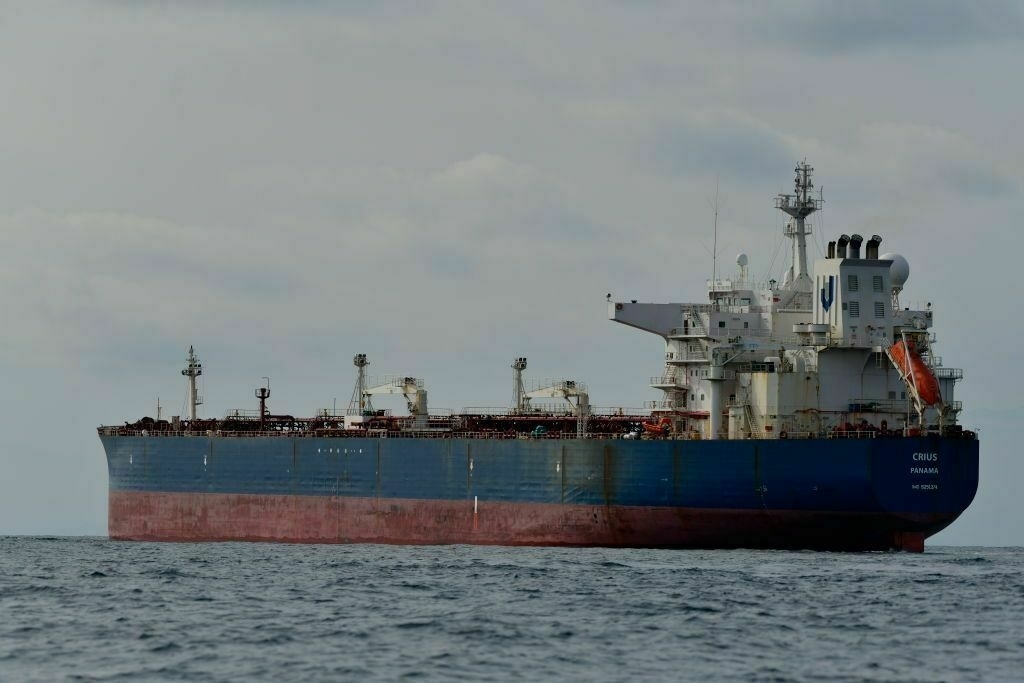
-
'Everyone is really shocked and upset' — Trump administration puts Voice of America journalists on leave, cuts funding to Radio Free Europe
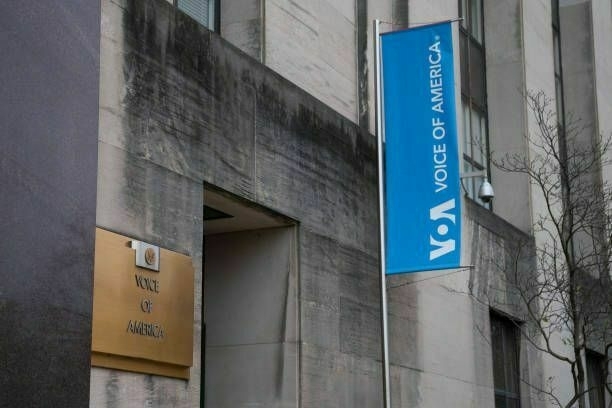
The Trump administration on March 15 followed up a on an executive order signed a day earlier by President Donald Trump vowing to gut funding for the U.S. Agency for Global Media (USAGM), which oversees Voice of America (VOA) and Radio Free Europe/Radio Liberty (RFE/RL).
As a result of the executive order which deemed USAGM as among “elements of the federal bureaucracy that the president has determined are unnecessary,” grant funding to U.S.-funded media outlet RFE/RL was terminated. Journalists and employees working at U.S.-funded Voice of America were also placed on administrative leave.
In an email obtained by the Kyiv Independent, employees at VOA were instructed “not to enter USAGM premises” nor “access USAGM systems."
“You will be expected to immediately surrender your official USAGM identification badge and press pass, as well as any keys or other official government property, including documents, records, electronic and telephone devices, and other equipment,” the email sent to VOA employees continued.
“Everyone is really shocked and upset, but we saw some signs of those decisions coming,” a VOA journalist who was placed on leave told the Kyiv Independent on the condition of anonymity.
In recent weeks, the government's human resource department sent emails to employees asking for personal emails and phone numbers in case they needed to be contacted, the VOA journalist told the Kyiv Independent. "We were suspicious obviously."
"Everyone is still shocked even though its been expected because everyone saw Elon Musk's tweets."
Tech billionaire Elon Musk, who serves as head of the Department of Government Efficiency (DOGE), on Feb. 9 called for shutting down RFE/RL and VOA.
Responding to comments by U.S. Special Presidential Envoy for Special Missions Richard Grenell, Musk wrote on X: "Yes, shut them down. Europe is free now (not counting stifling bureaucracy). Nobody listens to them anymore. It’s just radical left crazy people talking to themselves while torching $1B/year of US taxpayer money."
Musk has criticized federal payments to media organizations like Politico, the Associated Press, and The New York Times, deeming them inefficient uses of taxpayer funds and moving to eliminate them.
"We are still considered government employees but not for long. No one is expecting that it will last," a VOA journalist said, adding that employees are expecting termination to be applied by the end of next week.
Politico reported on March 14 that U.S. government-backed broadcaster Radio Free Asia was furloughing about 300 U.S.-based staff next week due to the suspension in funding.
The move comes as Ostap Yarysh, a prominent Ukrainian correspondent at VoA, was dismissed on March 7, reportedly following an inspection by DOGE.
The New York Times reported on Feb. 28 that the USAGM, which oversees VOA, launched an investigation into journalists who had spoken out against Trump’s policies.
VOA Director Mike Abramowit said in a statement on social media that over 1,300 journalists, producers and support staff were place on leave, criticizing the move as "failing to protect U.S. interests."
"Even if the agency survives in some form, the actions being taken today by the Administration will severely damage Voice of America’s ability to foster a world that is safe and free and in doing so is failing to protect U.S. interests," Abramowit wrote.
Funding for Radio Free Europe Slashed
In addition to the leave imposed on journalists at VOA, grant funding to U.S.-funded media outlet Radio Free Europe/Radio Liberty (RFE/RL) was put to a halt.In a letter sent by USAGM senior advisor Kari Lake, a staunch Trump supporter and former news anchor turned Republican Senate candidate, current U.S. government grant funding was terminated on March 15.
"This letter provides notice that that the U.S. Agency for Global Media (USAGM) is terminating you federal grant... and any other grants with USAGM," the letter obtained by journalists reads.
In response to the termination of funding, Stephen Capus, the head of RFE/RL — which first began broadcasting into the Soviet Union during the Cold War — said that the decision was "a massive gift to America's enemies."
"The Iranian Ayatollahs, Chinese communist leaders, and autocrats in Moscow and Minsk would celebrate the demise of RFE/RL after 75 years. Handing our adversaries a win would make them stronger and America weaker," Capus added.
Trump has long criticized U.S.-funded media organizations, criticizing them over their coverage of the U.S. president, and often referring to them as "fake news."
In total, the networks reach an estimated 427 million people across the world and employed thousands of employees across the United States, Cuba, Europe, and Asia.
The Trump administration has previously cut thousands of federally-funded positions, with the cuts directly impacting support for Ukraine. In February, the Trump administration terminated the employment of top officials from the U.S. Agency for International Development (USAID) after they attempted to prevent representatives from Elon Musk’s DOGE from accessing restricted areas.
UK’s Starmer says ‘troops on the ground and planes in the sky’ could secure Ukraine peace dealPrime Minister Sir Keir Starmer announced today that an expanded coalition of nations is ramping up efforts to back Ukraine in peace negotiations with Russia, following a high-level virtual summit in London on March 15.The Kyiv IndependentKollen Post
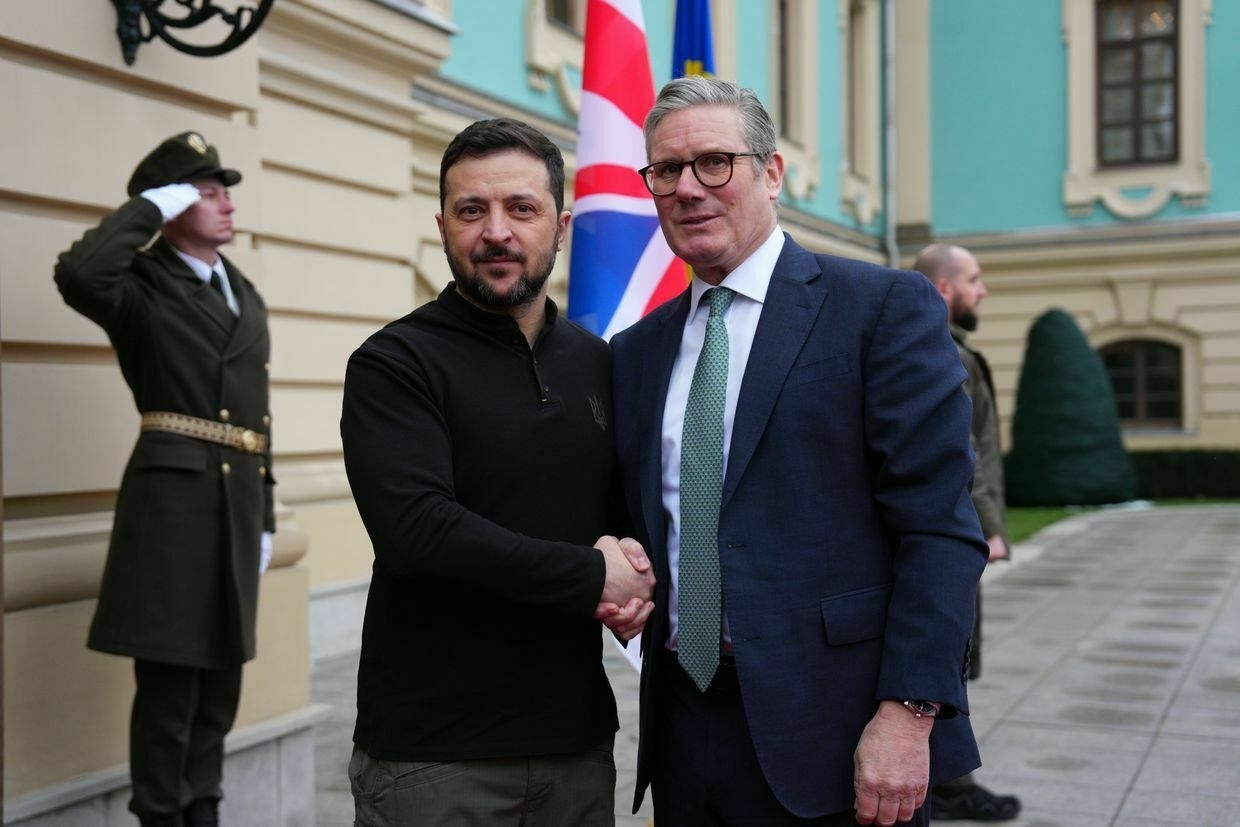
-
‘Painful for Russia:’ What new U.S. sanctions on Russian energy mean for Moscow
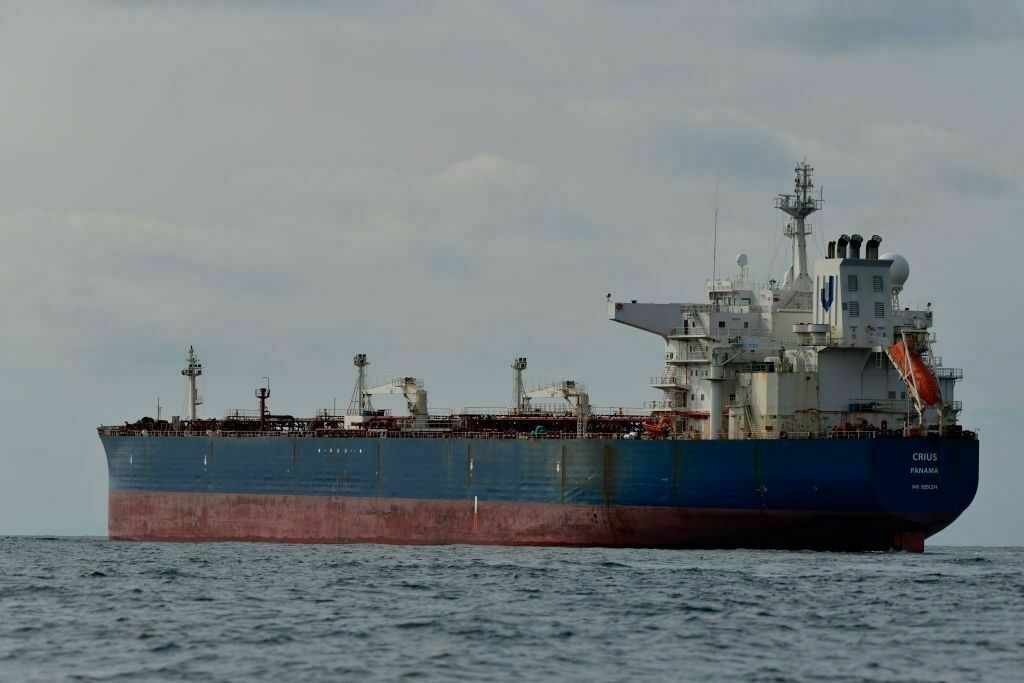
The Trump administration dealt a blow to Russia’s energy sector last week after it let lapse an exemption allowing Russian banks to use U.S. payment systems for energy transactions.
The move closed an important financial channel for Russian oil and gas exports and comes as Washington looks for ways to pressure Moscow to agree to a U.S.-brokered ceasefire deal in Ukraine. Russian President Vladimir Putin said he was open to a deal, but has demanded concessions from Kyiv before moving forward.
A license put in place by the Joe Biden administration at the start of the full-scale invasion had allowed a number of Russian banks to continue receiving energy payments in U.S. dollars.
The move aimed to prevent sharp increases in energy prices and avoid an energy crisis in countries dependent on Russian energy resources while otherwise maintaining sanctions pressure on Russia’s financial system.
As part of the Biden administration’s most sweeping sanctions against Russia implemented in January at the end of Biden’s term, the license’s expiration date was cut short from the usual six-month period and scheduled to end on March 12.
Allowing the license to expire “is painful for Russia," said Ihor Burakovsky, head of the Board at the Institute for Economic Research and Policy Consulting. “Oil and gas is the key sector of the Russian economy — its key source of export revenues."
“Any restrictions that complicate countries' access to the international financial system create serious problems for their economies,” Burakovsky told the Kyiv Independent.
Although most Russian banks were disconnected from SWIFT in early 2022, certain institutions, particularly Gazprombank, were permitted to process payments for energy exports.
Foreign buyers paid in euros or dollars into special accounts at Gazprombank, after which the currency was converted to rubles to comply with Putin’s demands for “ruble payments” for gas.
“This makes it harder for Russia to get paid for their energy,” said James Angel, associate professor at the Georgetown School of Business.
“They have to go to more trouble to feed their war machine. Until they find an alternative way to get value for their energy, they will have less to spend on bombing Ukraine. Eventually, they will find a less efficient way to get paid."
Burakovsky also noted that Russia is adept at finding ways around sanctions. Russia has created a large shadow fleet of approximately 800 vessels to evade sanctions put in place after the start of the full-scale invasion.
Many of the fleet’s ships — poorly maintained and with murky owners that pose security and environmental risks — are already under U.S. and EU sanctions.
Limiting Russian oil moneyThe new restrictions on payments undermine the Russian economy by significantly complicating energy exports — the country’s main source of income, experts say.
“The banking sector and access to international finance is currently the Achilles' heel of the Russian economy,” said Burakovsky.
Traditional sanctions against Russia’s oil and gas sector included restrictions on equipment supplies and extraction technologies and setting a price ceiling of $60 per barrel for oil. The new restrictions complicate a key aspect of Russia’s energy sector — conducting settlements between buyers and Russian exporters.
Russia will be forced to seek alternative routes by using shadow schemes to circumvent restrictions or conducting payments in national currencies, Burakovsky said. This creates additional hurdles, especially with countries like India and China.
“Since the Indian rupee is not a freely convertible currency, it is very difficult to take it out of India. This creates a situation where Russia supplies oil to certain countries, but the money remains there,” said Burakovsky.
To circumvent Western sanctions, Russia has also begun using cryptocurrencies in oil transactions with China and India.
Burakovsky notes that although the U.S. cannot completely stop Russia due to small volumes of bilateral trade, restricting access to the international financial system is “an extremely painful issue."
That could explain Russia’s demands in lifting sanctions on oil exports as part of a ceasefire agreement.
What the decision means for U.S.-Russia relationsAs Trump looks to negotiate a swift end to the war, his team has increasingly ramped up pressure on Kyiv and President Volodymyr Zelensky while making few demands of the Russian side so far.
This has led to speculation that Trump could try to force Kyiv into an unfavorable peace deal that would effectively amount to Ukraine’s surrender.
The new sanctions could, however, be a signal from the Trump administration that it is ready to use sanctions to exert pressure on Moscow to agree to both a ceasefire and a peace deal.
“Closing this loophole now is a way to demonstrate greater resolve in the fight against Russian aggression and that the U.S. has not turned into Putin’s puppet,” said Angel.
The new sanctions close what he describes as a critical “loophole” in the previous sanctions regime, he said.
While Trump may be looking for a quick resolution to the war and granting Russia sanctions relief as part of any deal, sanctions are a joint effort by a coalition of 47 countries, including the EU, Australia, Japan, and Canada.
“Trump understands that the U.S. is an economic, military and political power, but in today’s world its dominance is not absolute,” Burakovsky said.
‘If Russia refuses, we should sanction the hell out of them’ — Trump, Sen. Graham hope Putin agrees to ceasefireU.S. President Donald Trump confirmed that U.S. officials would meet with Russian representatives in the coming days to discuss the ceasefire.The Kyiv IndependentOlena Goncharova
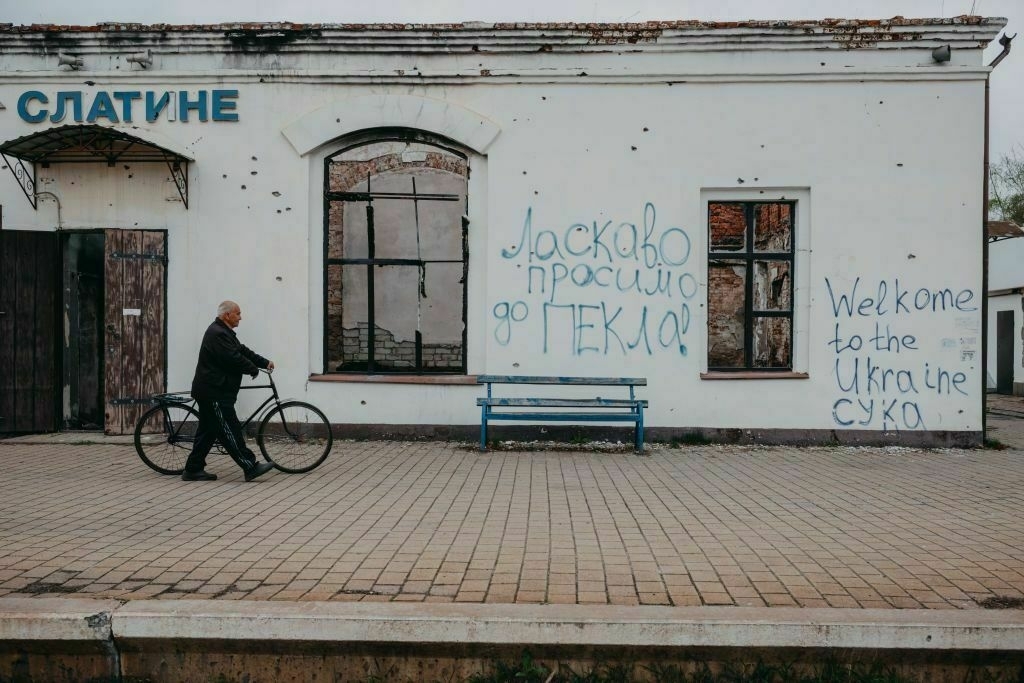
-
U.S. Sanctions Policy in Chaos: Trump’s Team & Congress Send Mixed Signals on Russia
-
Trump appoints Kellogg as Special Envoy to Ukraine, removes him from dealings with Russia
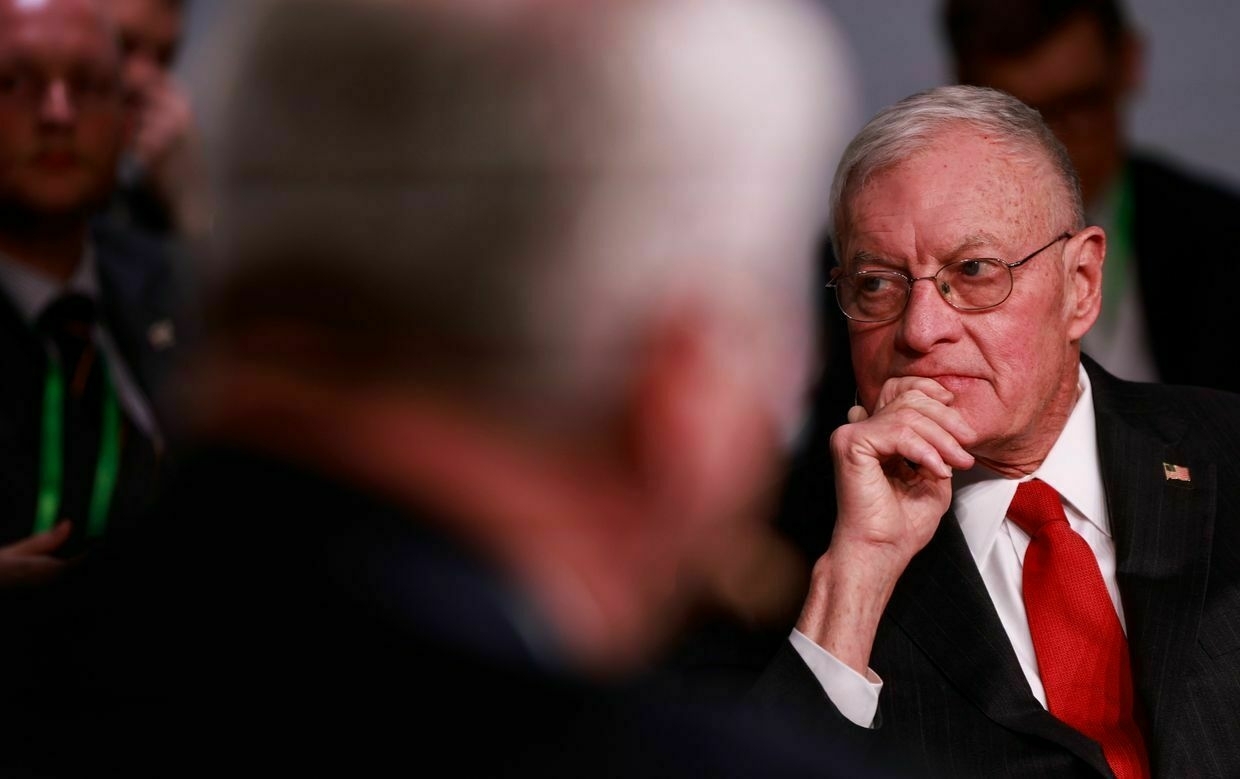
U.S. President Donald Trump appointed General Keith Kellogg as Special Envoy to Ukraine on March 15, where he will communicate directly with Ukrainian leadership rather than participate in negotiations with Russia as previously intended.
Initially appointed as Trump’s Special Envoy for Ukraine and Russia, Kellogg was to be involved in direct peace talk efforts between the two countries. However, recent NBC News reports indicate that he was excluded from high-level peace at the Kremlin’s request as Moscow perceived as being too sympathetic to Ukraine.
“General Kellogg, a Highly Respected Military Expert, will deal directly with President Zelensky, and Ukrainian leadership. He knows them well, and they have a very good working relationship together. Congratulations to General Kellogg!” Trump announced on Truth Social.
Although Trump did not explicitly say he would be removing Kellogg from dealings with Russia, the change in title is likely reflective to changing attitudes within Russia.
Kellogg responded to the new appointment on X, thanking Trump for the new opportunity.
“I am deeply honored and humbled by President Trump’s confidence in appointing me as Special Envoy to Ukraine. I have been privileged to have known Trump since 2015, and he will END THIS WAR. It is an honor to serve our great nation and advance the vital interests of the United States. America First!” Kellogg wrote.
Kellogg previously co-authored a peace plan that would freeze the front line in Ukraine, take NATO accession off the table for an extended period, and partially lift sanctions imposed on Russia. His peace proposals also call for continued U.S. military aid to Ukraine as well as strong security guarantees to Kyiv to prevent further Russian aggression.
Kellogg previously visited Kyiv in late February for discussions with Ukrainian officials, but had since not been involved in a U.S. delegation in talks with Russia.
Meeting with Kellogg ‘restores hope,’ Zelensky says“A meeting that restores hope, and we need strong agreements with America — agreements that will really work,” President Volodymyr Zelensky said after meeting with U.S. Special Envoy Keith Kellogg.The Kyiv IndependentAbbey Fenbert
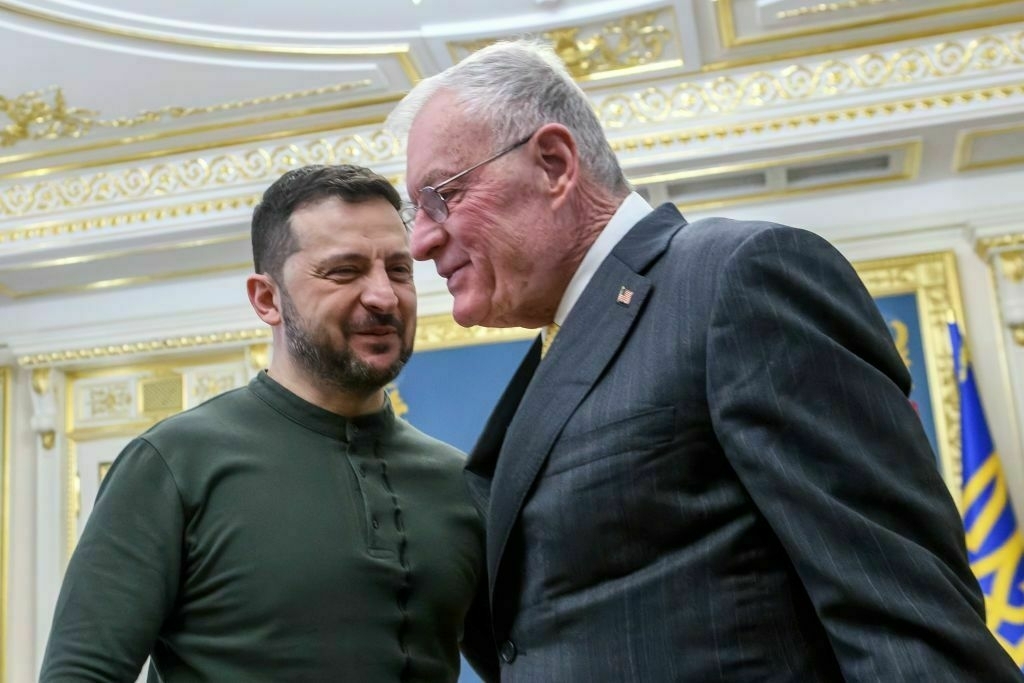
-
Trump and Putin's claims of Ukrainian troops encirclement in Kursk region debunked by Russian war bloggers
In a surprising twist, U.S. President Donald Trump and Russian President Vladimir Putin have made claims about the encirclement of thousands of Ukrainian troops in the Kursk region that have left even Russian war correspondents baffled. Contrary to the assertions made by both presidents, several Russian propagandists have come forward to debunk these claims.
One of Russia’s prominent war bloggers, Yuriy Podolyaka, refuted the claims, noting that there’s no evidence of such encirclements.
Despite Russia's official version that up to 5,000 Ukrainian soldiers have been encircled, and Trump's insistence on urging Moscow to "spare" Ukrainian servicemen, Podolyaka stated, "I've spoken with many guys on the front lines. There’s no grouping of encircled enemy forces of that magnitude, not even close." Echoing this sentiment, the war channel "Military Informant" also reported that there is no encirclement of Ukrainian forces in the Kursk region.
Further shedding light on the situation, the channel pointed out that it's not even possible to accommodate thousands of soldiers in the area that the Ukrainian Armed Forces control following their strategic withdrawal.
"To avoid questions later like 'where did the thousands of Ukrainian soldiers from the cauldron disappear to.' It practically never existed," the source emphasized. They suggest that while there was a potential threat of encirclement, this is no longer relevant, accusing Trump and Putin of political maneuvering through fake news. It is anticipated that Putin may generously offer to release the non-existent "thousands of Ukrainian troops" from a fabricated scenario in exchange for actual concessions from Ukraine.
The Ukrainian General Staff has already dismissed Trump and Putin's statements regarding an encircling of Ukrainian forces in the Kursk region. In reality, Ukrainian forces conducted a controlled withdrawal from their positions to preserve soldiers' lives in light of deteriorating conditions on that front.
-
Ukrainian troops not encircled, withdraw to strategic positions in Kursk region, journalist reports
Ukrainian military journalist Yuriy Butusov has debunked claims that Ukrainian Armed Forces have been encircled in Russia's Kursk region.
Reports of a large encirclement in the area, allegedly mentioned by former U.S. President Donald Trump and Russian President Vladimir Putin, are false. On the contrary, the decision to withdraw forces from the bridgehead has allowed Ukraine to improve its position and avoid significant losses, as Butusov explains in his Facebook blog.
Butusov assures that no Ukrainian units have been cut off from the border in Kursk, and the decision to eliminate the Kursk bridgehead has substantially enhanced the Defense Forces' standing. "Our military forces have gained freedom of maneuver and shortened logistical routes. Our soldiers are holding a tactically advantageous defensive line — several heights along the state border on Russian territory. Holding these heights plays a crucial role in the defense of the border line," the military journalist wrote.
He also stated that there is currently no threat of a massive Russian breakthrough into the Sumy region or an assault on Sumy. Russian forces are only capable of small group incursions near the border.
On March 14, Trump unexpectedly claimed that thousands of Ukrainian troops had been encircled by Russian forces in the Kursk region. He mentioned requesting Putin to spare the “encircled” soldiers, repeating this story multiple times throughout the day. Putin soon echoed this claim, setting a March 17 deadline for the "encircled" units to surrender as a precondition for establishing a ceasefire.
However, there is no encirclement of Ukrainian forces in Kursk or other front areas, now or anticipated. The Ukrainian Armed Forces efficiently evacuated the Kursk bridgehead, which had lost its military significance.
This encirclement story has also been refuted by the General Staff of the Armed Forces of Ukraine and various military experts, including international ones.
-
Zelensky appoints Yermak to lead Ukraine's peace delegation
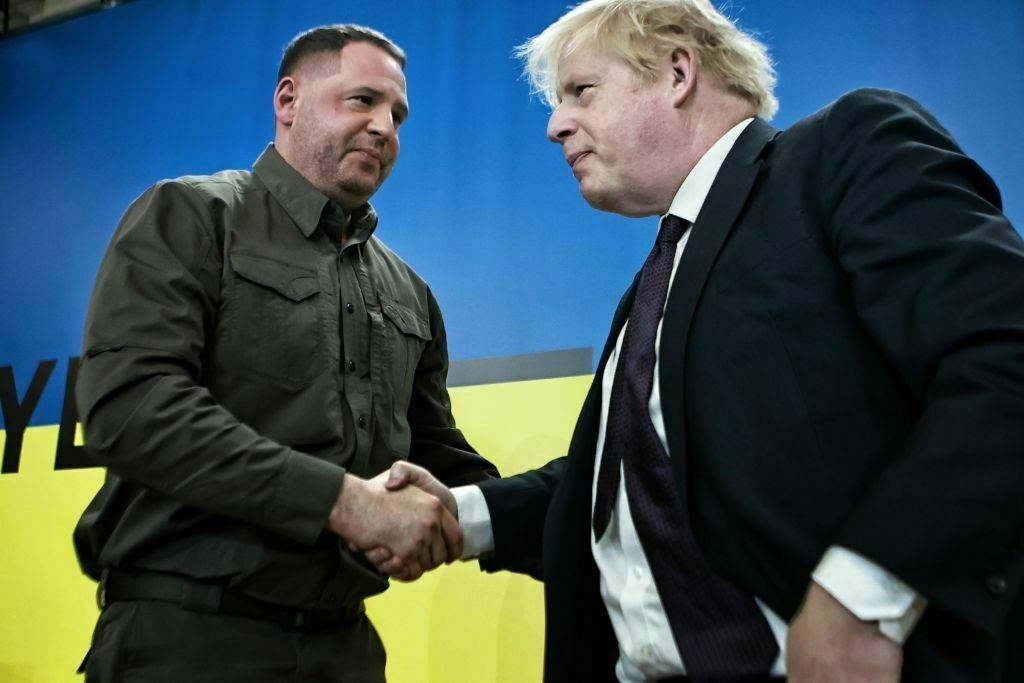
Ukrainian President Volodymyr Zelensky issued a decree on March 15 creating a new delegation for international peace negotiations.
The delegation will be led by Andriy Yermak, the head of Zelensky’s office, the decree, published on the president’s website, says. Other members include Foreign Minister Andriy Sybiha, Defense Minister Rustem Umerov, and Yermak’s deputy, Pavlo Palisa.
According to the decree, Yermak, as head of the delegation, has the authority to modify its composition with the approval of the foreign minister. He can also bring on additional government officials, experts, and advisors.
Yermak, Sybiha and Umerov also comprised the delegation who negotiated a deal with U.S. representatives in Jeddah for a 30-day ceasefire with fairly limited conditions, including a vague offer to allow U.S. companies into Ukrainian precious mineral mining.
Ukraine, Russia and the U.S. are currently locked in negotiations over a potential ceasefire. After a U.S. delegation was in Moscow this week, Russian President Vladimir Putin said he was open to a ceasefire deal, but listed a number of demands of Ukraine that would effectively subjugate Ukraine.
Following the talks in Moscow, President Donald Trump said that the “U.S. has received ‘some pretty good news’ on Ukraine-Russia ceasefire, without providing further details.
Yermak has been described in the past as the most powerful chief of staff in Ukraine’s history, and has attracted criticism for accumulating unprecedented power and influence within the Zelensky’s Presidential Office.
Late last year, Politico included Yermak among the finalists for the “dreamers” category as part of its yearly list of the most influential people in Europe.
“Nearly three years into Russia’s invasion of Ukraine, Andriy Yermak’s focus has moved from trying to win the war to trying to win the peace,” Politico wrote of Yermak.
The former television producer became Zelensky’s chief of staff in 2020, becoming an indispensable gatekeeper for the Ukrainian president, dubbed “The Fixer” by Politico.
UK’s Starmer says ‘troops on the ground and planes in the sky’ could secure Ukraine peace dealPrime Minister Sir Keir Starmer announced today that an expanded coalition of nations is ramping up efforts to back Ukraine in peace negotiations with Russia, following a high-level virtual summit in London on March 15.The Kyiv IndependentKollen Post
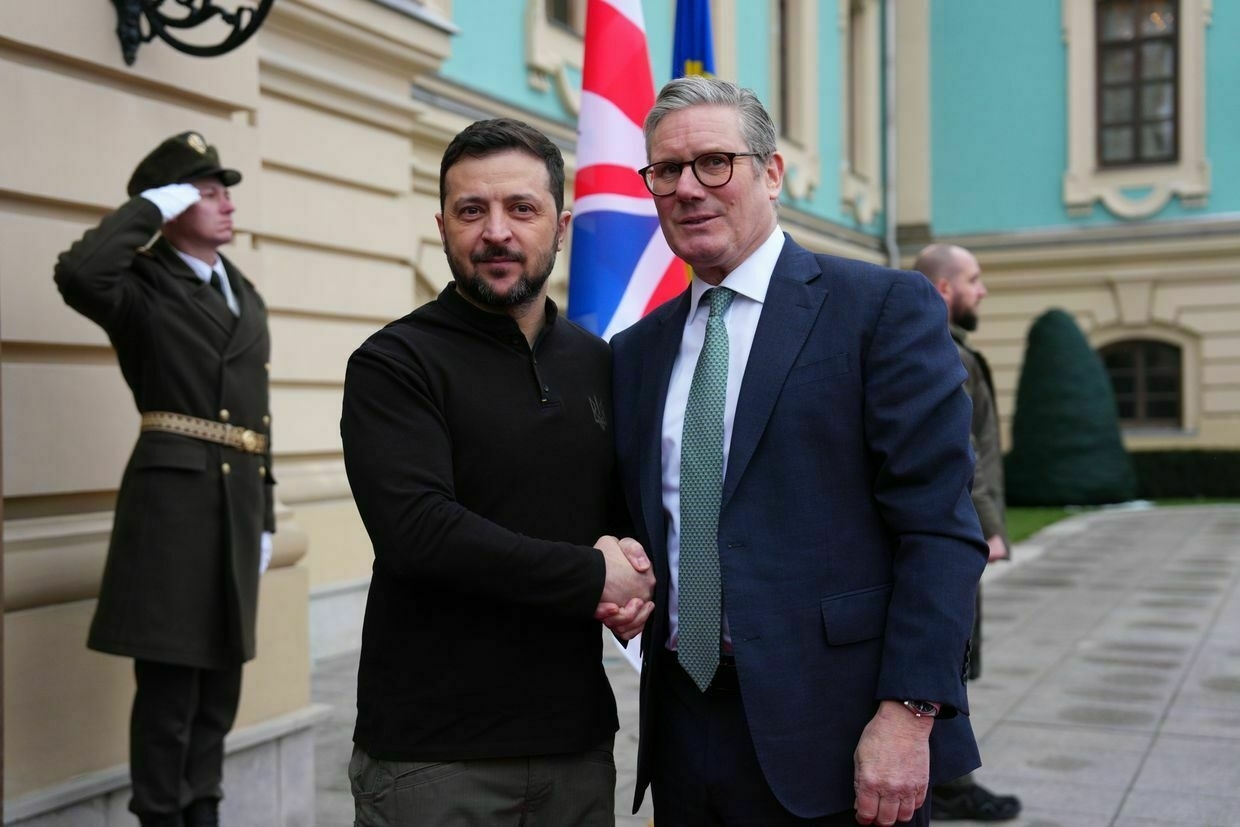
-
UK's Starmer says 'troops on the ground and planes in the sky' could secure Ukraine peace deal
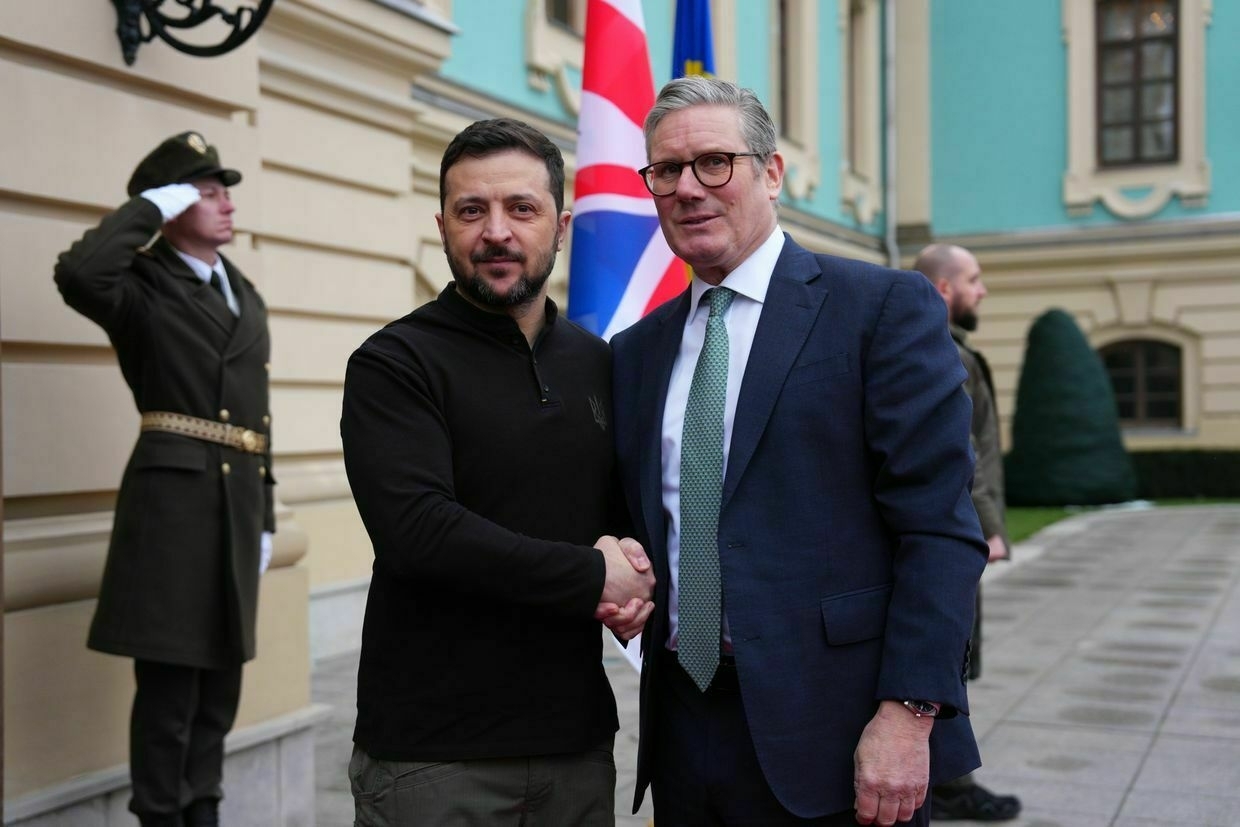
Prime Minister Sir Keir Starmer announced today that an expanded coalition of nations is ramping up efforts to back Ukraine in peace negotiations with Russia, following a high-level virtual summit in London on March 15.
The coalition, which now includes more partners than were at the initial Lancaster House meeting two weeks ago, will also hold military talks on March 20 to develop “stronger and robust plans” for Ukrainian security guarantees, Starmer said in a press conference following the summit.
“We will now move to the operational phase,” Starmer told reporters, emphasizing that the upcoming military discussions will focus on concrete security guarantees that could include “troops on the ground and planes in the sky” if necessary.
“We know from history, recent history, that a deal without security arrangements is not something which (Russian President Vladimir) Putin respects,” Starmer said, warning that without proper security guarantees, “Putin will breach the line again."
Starmer also said that participating nations are actively discussing the seizure of frozen Russian assets as part of intensified economic pressure on Moscow. While acknowledging the legal complexities involved, Starmer confirmed that the coalition agreed to implement additional sanctions against Russia immediately.
“We agree we will keep increasing the pressure on Russia, keep the military aid flowing to Ukraine, and keep tightening restrictions on Russia’s economy,” Starmer said, calling Russian Putin’s conditional response to peace overtures “not good enough."
Starmer was, however, vague on specific measures he and allies would take to compel Putin to drop some of his more exorbitant demands in ceasefire negotiations.
Putin on March 13 said that Moscow was ready to agree to a U.S.-backed 30-day ceasefire but demanded that as part of any cessation of hostilities Kyiv would limit mobilization, training of troops and the West would halt military aid to Ukraine. Some have said Putin’s demands amount to Kyiv’s surrender.
The expanded coalition now includes members from Europe, Canada and Australia as well as backing from Japan.
Despite the U.S. under President Donald Trump disavowing much of his predecessor’s Ukraine support, Starmer was keen to highlight his national security advisor’s recent discussions in Washington.
“We are talking to the U.S. every day about what happens next,” Starmer said, expressing confidence that President Trump is “absolutely committed” to achieving lasting peace in Ukraine.
Putin is afraid to tell Trump he wants to continue war in Ukraine, Zelensky saysRussian President Vladimir Putin’s remarks about a 30-day ceasefire indicate that he is preparing a rejection of the U.S. proposal, President Volodymyr Zelensky said on March 13.The Kyiv IndependentKateryna Denisova
